- Applying For Scholarships

How to End a Scholarship Essay
David Dec 3, 2018

Get our best scholarship practices, insights & tips delivered to your inbox
Thank you for subscribing!
You are so close to the end. Your hard work of studying, finding scholarships and applying to them is almost completely behind you. At this point, you may have written most of your scholarship essay.
(If you’re still struggling to start, head over here first ) when you realize, you don’t know how to end a scholarship essay. Well, no fears! We are here with some great tips for writing an awesome conclusion that will help you win the scholarship of your dreams.
How To Write the Conclusion
Your conclusion needs to give the judges the last impression of who you are. It should leave them remembering you.
Your conclusion should do these three things:
The fastest path to earning scholarships
Simplify and focus your application process with the one-stop platform for vetted scholarships.
- Wrap up your story by summing up your main points
- Clarify your thesis in a new and fresh way
- Answer the question: Why is all this important?

This is where you need to answer, why does all this matter to you? What are your hopes for the future? Where do you see yourself in a few years? This is the place to share them. Find a way to connect to your original story that you started your essay with.
A conclusion is a good place for you to explain how the scholarship will help you reach your goals. Share how you plan to use the life lesson from your essay in your future plans, to meet goals or dreams.
Remember, up until now your essay was about your past. The conclusion is your chance to bring the judge back to your present and talk about the future.
For example, if you started your essay by sharing a specific experience… You can conclude the essay by explaining how that experience will impact you in the future.

Scholarship committees have thousands of students to choose from. They want to make sure that the students they choose will get the most out of winning the scholarships.
Ideas On How to End a Scholarship Essay
- End the conclusion with dialogue- this could be words of admiration from a character in the story such as a mentor, parents, or teacher.
- Action- Leave the essay open-ended so that the reader thinks about you. For example, “I put on my jacket and stepped outside confidently.”
- End the conclusion with a description: “The sun began to peak out from the clouds, sending rays of orange and red throughout the sky, warming my face and brightening up the world.”

Finally, don’t forget to revise your paper as well as have family or a teacher also revise it . Revision is necessary to a successful paper. Make sure that you have not left any questions unanswered in your essay. If so, your conclusion is a good place to answer those questions.
Conclusion Example:
Well, I can’t promise that I’m going to find a cure for cancer or the AIDS virus, but, I know one thing is true. The way my eyes would brighten up when we sang that song is the same way they brighten up when I think about my future. While I may not find the cure for fatal illnesses, I know that my passion for the field will defeat any hurdle that stands in my way and that I am going to do everything to be the best doctor that I can be.
- Scholarship Essay

David Tabachnikov is the CEO of ScholarshipOwl. Formerly at Waze and Google, David is an experienced CTO/R&D manager with over 10 years of experience of leading tech teams. David fervently believes that students should have greater access to education, and is passionate about using technology to help them achieve that goal.
Related Stories View All

When A.I. Met Scholarships: Our Newest Killer Recommendations Are There for the Win

Scholarships for Veterans
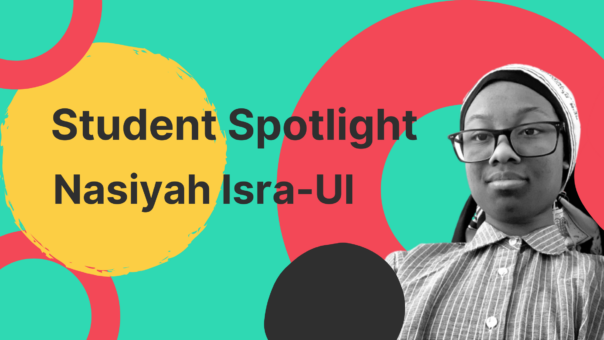
Student Spotlight: Nasiyah Isra-Ul
Get started with scholarshipowl.
Simplify and focus your application process with the one-stop platform for vetted scholarships
- Skip to primary navigation
- Skip to main content
- Skip to primary sidebar
- Skip to footer

Scholarships in Ink
How to End Your Scholarship Essay
S tarting your scholarship essay with a strong introduction is vital. The strong impact doesn’t stop with the start of your essay, however. You can have a powerful beginning, persuasive content, but completely lose the reader if your conclusion doesn’t leave a lasting impression. Because of this, the end of your scholarship essay is one of the most important pieces of the puzzle.
You want the donor to know you deserve their scholarship more than anyone else submitting an essay. Think of your conclusion as the bow that packages the entire essay to sell yourself as the best candidate.
First, let’s talk about what you should avoid in the closing paragraph.
1. don’t end your essay with “in conclusion.”.
University Language Services explains that this is redundant. By the time your reader reaches the end of the essay, it’s obvious that you’re concluding your thoughts. Instead, use the last part of your scholarship essay to make the final sale. Use the beginning of the conclusion to talk about why you should be chosen for the scholarship.
2. Don’t use your conclusion to just summarize your essay.
Of course, you want to tie all your thoughts together with the pretty bow that I mentioned earlier. Make it spectacular, though. Bring all those thoughts together, and finish with your argument of why you deserve the scholarship. University Language Services notes that you should answer the question of “So what?” in your conclusion. Keep that cue in mind when making it count in the end.
3. Don’t dwell on the important details of your essay.
According to PocketSense , you’ve already talked about the key topics of your essay before you even get to your conclusion. You don’t have to waste valuable word count by repeating yourself. However, you can absolutely highlight the important parts that. Doing so will help the reader understand how those highlights make you an excellent candidate for the scholarship.
Now that we’ve talked about what not to do when writing the end of your scholarship essay, let’s touch on what you should do.
1. talk about the future..
In addition to highlighting the important parts of your past accomplishments in your essay, PocketSense recommends talking about your future plans and goals. The conclusion of your scholarship essay is a great time to let the reader know what your future goals are, and how the scholarship will help you achieve that. This will help tie your past and present together, and show the scholarship judges the value in those thoughts.
2. Tie conclusion back to your introduction.
If you gave a powerful personal story in your introduction, the conclusion is a great time to bring the reader back to that. For example, if you opened your scholarship essay talking about a specific personal story, the conclusion is a great time to tie back to that story and give it a great ending. Essaypro.com explains that this helps gives the reader a more solid connection to you and the story. If your reader has this connection, you’re much more likely to set yourself apart from the other candidates.
3. Use reflection to show personal growth.
Essaypro.com recommends using one of your weaknesses to show your reader how you used a challenge as a stepping stone. Doing so shows personal growth, which is especially appealing for scholarship judges when they are finalizing their decisions on applicants. Most people shy away from discussing their weaknesses and focus only on their strengths. If you’re doing what most people do, you’re missing out on a great opportunity to show even more strengths to your reader!
4. Say thank you to the committee.
The scholarship committee is doing you a great service by potentially awarding you a sum of money towards your education. The conclusion of your scholarship essay is an appropriate time to thank them for considering your application.
5. Edit and revise.
Now that you’ve written your scholarship essay and concluded all your thoughts with the pretty bow on the package, one of the most important parts of the ending is to edit and revise. Be sure to have a parent or teacher (or both!) proofread your entire essay, and offer any advice on edits that need to be made.
You can have a stellar intro, body, and conclusion. You can have a powerful voice through the entire essay, with some great examples of your personal achievements and plans for the future. However, if you fail to have a grammatically sound scholarship essay, you will lose your reader and reduce your influence. All that hard work and valuable thoughts can be diminished.
Take the time to put that final bow on the package, and get ready to hand it off to the scholarship essay committee!
Quick Links
Getting Started Applying for Scholarships Scholarship Essay Tips Sample Scholarship Essays with Feedback
Scholarship FAQs Scholarship Essay Outline Scholarship Planning Worksheets Glossary of Scholarship Terms
Contact Us Our Services Affiliate & Privacy Disclosures

How to Close a Scholarship Essay

How to Write a Scholarship Letter
You’re almost there! You’ve worked hard during high school. You’ve researched universities and narrowed down your favorite programs. Now you’ve written your scholarship essay—or most of it. All that remains is the hardest part: the conclusion. You know that the conclusion can make or break any essay, and this isn’t an essay that you want broken. To give yourself the best possible shot at a scholarship, make sure that the conclusion of your essay is the best part of it.
Make it Personal
Make your essay personal. This does not mean to over-share or to include inappropriate information. However, being personal does mean that your essay displays your voice as a writer and is not simply a resume of your accomplishments, according to the Office of Scholarships and Financial Aid at the University of Arizona. You’ll want to be personal throughout the scholarship essay, but it’s especially important when you’re closing, so the reader has a good understanding of who you are. You can be personal in many different ways, so decide which way works best for the essay you’ve written: humor, anecdotes, and thoughtfulness all go a long way to make readers feel like they know you.
Summarize Your Previous Accomplishments
Yes, you’ve already talked about how high your grades are. Yes, you’ve already stressed how involved in your community you are, and yes, you feel like you’re bragging. However, like every essay, a scholarship essay needs a concluding paragraph that summarizes what you’ve already discussed. Don’t dwell on details since you have accomplished this within the essay—but do highlight the most important parts.
Discuss what You Hope to Achieve in the Future
You don’t have to limit yourself to writing what you’ve already done in the conclusion of a scholarship essay. It’s also your chance to talk about what you plan to do in the future. The conclusion is a great place to look ahead as well as to look back states the Writing Center at the University of Michigan at Flint. If you’re applying for a scholarship then you have dreams for the future; don’t keep them in your diary—share them.
Discuss How the Scholarship Will Help You Achieve Your Goals
Scholarships take a lot of work to establish and evaluate. Scholarship committees want to know that the money they give makes a difference to the students who receive them. In addition to telling them what you want to do in the future, tell them how their scholarship will help you do it.
Related Articles

How to Write College Scholarship Essays

Things to Put on College Scholarship Applications to Help Your Chances

How to End a Scholarship Letter

How to Write a Scholarship Essay About the Reason You Are Applying

How to Write an Essay on Overcoming Adversity

How to Start a Scholarship Essay About Your Accomplishments

How to Write a Scholarship Form

How to Write a Biography to Win a Scholarship
- University of Arizona Financial Aid Office: Scholarship Essay Writing Tips
Living in Canada, Andrew Aarons has been writing professionally since 2003. He holds a Bachelor of Arts in English literature from the University of Ottawa, where he served as a writer and editor for the university newspaper. Aarons is also a certified computer-support technician.
- Link to facebook
- Link to linkedin
- Link to twitter
- Link to youtube
- Writing Tips
How to Write a Scholarship Essay (With Examples)
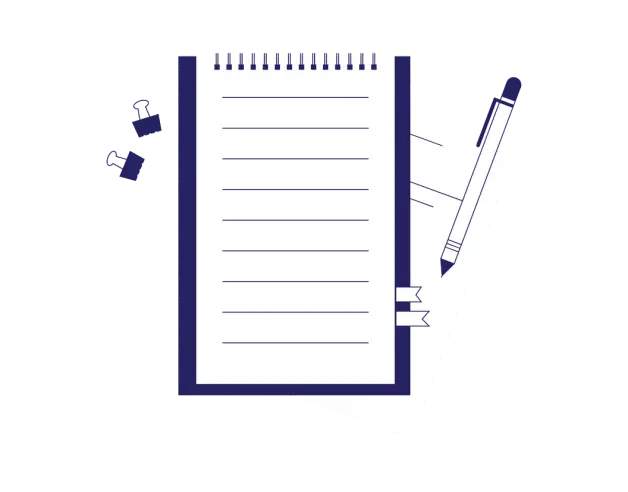
- 6-minute read
- 22nd August 2022
Writing a scholarship essay can seem like a daunting task. For many students , higher education isn’t possible without financial aid, and scholarships are especially valuable because the money awarded doesn’t have to be paid back.
Even though the stakes are high, there are a few manageable steps you can take to ensure you write a great essay to submit with your scholarship applications. We have a few top tips to help you get started, along with writing examples to demonstrate some key points. Check out our guide below to learn more.
A scholarship essay is a great opportunity to present yourself and your accomplishments in an impactful way. It is, therefore, essential to be aware of each scholarship deadline so you can allow sufficient time for the writing process, which typically includes the following:
· Read the essay prompt and brainstorm ideas.
· Create an outline covering the key points you want to address.
· Write a draft and seek feedback from trusted teachers, family, or friends.
· Make any necessary revisions and proofread before submitting your final draft.
Scholarship review committees will be able to tell if you rushed through your essay, so give yourself the best chance of winning an award by staying organized and on schedule!
Who and What?
Researching the scholarship provider and diligently reviewing the essay prompts can help you write an essay that makes you stand out as a top candidate.
1. Who are you writing to?
Learn more about the organization offering the scholarship and why the scholarship fund was created.
For instance, a scholarship may honor its organization’s founder, and the founder’s qualities (e.g., integrity, good citizenship, and leadership) might be the same values guiding the scholarship program as a way to continue the founder’s legacy.
If you identify with any of the same qualities, you can incorporate those keywords into your essay to demonstrate your shared values. Remember to remain authentic, though!
2. What are you writing about?
You must read the essay prompt carefully to identify precisely what you need to accomplish with your essay.
Some prompts ask about your career goals and how you plan to achieve them or your achievements and the challenges you overcame to reach them.
You’ll write about common topics across multiple scholarship applications – some may even be similar to your college admission essay – so you can repurpose your essays as long as you’re diligent about tailoring each one to its prompt.
Your application will likely require other items such as transcripts and test scores, but the essay is your chance to offer something entirely unique. Write about key experiences that highlight who you are and what you’ve accomplished, or you could mention something you’re passionate about.
Remember to follow any specific instructions regarding length and formatting, and be sure to answer all questions listed in the prompt. It can hurt your chances if you’re unable to show the committee that you’re detail-oriented and can follow directions.
Structuring Your Essay
Your essay should follow a standard format that includes a clear beginning, middle, and end. Typically, you should:
· Establish your main idea in the introduction.
· Include a separate body paragraph for each key point that supports your main idea.
· Draw it all together and revisit your main idea in the conclusion.
Scholarship committees read thousands of essays each year. And often, there are hundreds of applicants for an award that can only go to a select few candidates. Writing a powerful introduction and conclusion gives you a chance to make a lasting impression.
1. Introduction
Write an introduction that hooks the reader and encourages them to stay engaged till the end of your essay. Don’t be afraid to add personal, tangible details and an anecdote .
Find this useful?
Subscribe to our newsletter and get writing tips from our editors straight to your inbox.
For example, if you’re writing about your career goals, demonstrate why you’ve chosen that career:
It was the biggest game of the season, and the stands were packed despite the bitter cold. My heart was beating louder than all of the cheers, and I was filled with the anticipation that one more run into the end zone would give us the championship. Everything went silent during that run when the tackle shattered both my leg and my dreams.
My world has always revolved around being an athlete – until one day it couldn’t. I spent many frustrating months rehabilitating, but I got through it because of my dedicated physical therapist, who helped me recover both physically and mentally after a devastating loss. And it was that profound experience that led me to pursue a career in the exercise sciences.
2. Conclusion
The conclusion is the last thing your reader will see, so it’s another opportunity for you to make your essay memorable.
Rather than summarizing with a general statement such as “this is why you should award me a scholarship,” perhaps explain what the financial assistance will help you achieve:
My parents never had the opportunity to go to college, and neither did their parents. I watched them work hard every day just to make ends meet, and I often questioned whether I could achieve anything more. Nevertheless, I spent four years working as hard as I saw my parents work, and I beat the odds by getting accepted to college. A scholarship could be invaluable for me, as it would allow me to attend and be successful without having to worry about finances.
Persuasive Writing
While you don’t want your scholarship essay to be overly informal, you’re certainly allowed to add some creativity and personal details to help persuade your readers.
One of the best ways to do so is by writing with the modes of persuasion ; that is, ethos, pathos, and logos.
Demonstrate your credibility. Use your real-life experiences and interesting details to establish, for example, how you’ve contributed to your community:
I saw how much bullying was impacting so many students at my school, so I founded my high school’s first anti-bullying club and organized campaigns to bring attention to the harm that people can cause one another.
Evoke an emotional response. The “show, don’t tell ” writing technique, which involves using descriptive words when discussing actions and emotions, can be especially useful here:
During one of our first awareness assemblies, the theater was completely silent as I read aloud anonymous stories from students about the scars bullying had left on their lives. Tears were stinging in my eyes as I described the struggles my classmates were facing, but I persevered to give a voice to those who didn’t have one.
Convey your point with reason and facts. Use statistics to demonstrate what you’ve accomplished:
In the first year alone, our club improved students’ feelings of safety and acceptance at our school by 53%.
Proofreading and Editing
Don’t forget the importance of proofreading your essay, as spelling and grammar mistakes can leave a bad impression on your reader. Our expert editors can help ensure your writing is clear, concise, and error-free. Give yourself a better chance at impressing scholarship committees by submitting a free trial document today!
Share this article:
Post A New Comment
Got content that needs a quick turnaround? Let us polish your work. Explore our editorial business services.
3-minute read
What Is a Content Editor?
Are you interested in learning more about the role of a content editor and the...
4-minute read
The Benefits of Using an Online Proofreading Service
Proofreading is important to ensure your writing is clear and concise for your readers. Whether...
2-minute read
6 Online AI Presentation Maker Tools
Creating presentations can be time-consuming and frustrating. Trying to construct a visually appealing and informative...
What Is Market Research?
No matter your industry, conducting market research helps you keep up to date with shifting...
8 Press Release Distribution Services for Your Business
In a world where you need to stand out, press releases are key to being...
How to Get a Patent
In the United States, the US Patent and Trademarks Office issues patents. In the United...

Make sure your writing is the best it can be with our expert English proofreading and editing.
Recently viewed courses
Recently viewed.
Find Your Dream School
This site uses various technologies, as described in our Privacy Policy, for personalization, measuring website use/performance, and targeted advertising, which may include storing and sharing information about your site visit with third parties. By continuing to use this website you consent to our Privacy Policy and Terms of Use .
COVID-19 Update: To help students through this crisis, The Princeton Review will continue our "Enroll with Confidence" refund policies. For full details, please click here.
Enter your email to unlock an extra $25 off an SAT or ACT program!
By submitting my email address. i certify that i am 13 years of age or older, agree to recieve marketing email messages from the princeton review, and agree to terms of use., writing a winning college scholarship essay.
If you need more money to pay for college, chances are you will be applying for several college scholarships . A great scholarship essay helps the scholarship provider understand the real person behind the application and can be the key to winning the award (assuming you meet the other scholarship criteria).

Scholarship Essays vs. College Essays
Scholarship essays are very similar to your college application essays in terms of strategy. Many scholarship hopefuls will share the same grades, test scores, and ambitions: the essay is your chance to shine (and grow that dream college fund!).
How to Write a Scholarship Essay
When you’re drafting your scholarship essay, here are some helpful tips to keep in mind:
1. Start the essay writing process early.
Leave yourself plenty of time to produce a well thought-out entry. Take the time to brainstorm your ideas, create an outline, and edit your entry as you would for any essay writing assignment for your English class.
Read More: How to Craft an Unforgettable College Essay
2. Understand the scholarship provider’s overall mission and purpose.
Each scholarship provider is looking for students who meet certain criteria. Consider writing about an experience or interest that highlights your strong ties to the organization’s mission. Genuine passion and enthusiasm for your topic will show through in your essay writing.
3. Follow the scholarship essay instructions.
Make sure to follow all of the necessary steps and review them before submitting your scholarship essay. Trust us, some of the brightest students have missed out on the chance to earn scholarships dollars all because they neglected to follow instructions. You don’t want to fall into that category!
4. Steer clear from essay topics that focus on negativity or pessimism.
Scholarship committees would rather see how you overcame hardships and succeeded despite the obstacles in your path (or what you learned from the times you failed).
Read More: 200 Colleges That Pay You Back
5. Don’t be afraid to get personal.
Share something about who you are. This is your chance to elaborate on elsewhere on your application you wouldn’t have had the opportunity to do so. Telling your story makes an essay genuine and ultimately more memorable to the scholarship committee.
6. Seek out writing advice and feedback.
Asking teachers, counselors, family members, or trustworthy friends for feedback on your essay will result in a better final product.
7. Yes, spelling and grammar matter.
Scholarship committees do notice grammar mistakes . Eveny tiny errors can distract a reader from your overall message. Before you submit your application make sure you take the time to proofread your essay from beginning to end.
8. Don’t give up!
When you’re tired, take a break, but don’t throw in the towel! Our online essay writing tutors are here for you anytime you get discouraged. We can help with everything from brainstorming and outlining to revising the final draft.
Looking for strategic college advice?
Get one-on-one help from former Ivy League and top tier admission officers. Our College Admission Counselors will help you find, apply, and get accepted to your dream school.

Explore Colleges For You
Connect with our featured colleges to find schools that both match your interests and are looking for students like you.

Career Quiz
Take our short quiz to learn which is the right career for you.

Get Started on Athletic Scholarships & Recruiting!
Join athletes who were discovered, recruited & often received scholarships after connecting with NCSA's 42,000 strong network of coaches.

Best 389 Colleges
165,000 students rate everything from their professors to their campus social scene.
SAT Prep Courses
1400+ course, act prep courses, free sat practice test & events, 1-800-2review, free digital sat prep try our self-paced plus program - for free, get a 14 day trial.

Free MCAT Practice Test
Thank you! Look for the MCAT Review Guide in your inbox.
I already know my score.

Enrollment Advisor
1-800-2REVIEW (800-273-8439) ext. 1
1-877-LEARN-30
Mon-Fri 9AM-10PM ET
Sat-Sun 9AM-8PM ET
Student Support
1-800-2REVIEW (800-273-8439) ext. 2
Mon-Fri 9AM-9PM ET
Sat-Sun 8:30AM-5PM ET
Partnerships
- Teach or Tutor for Us
College Readiness
International
Advertising
Affiliate/Other
- Enrollment Terms & Conditions
- Accessibility
- Cigna Medical Transparency in Coverage
Register Book
Local Offices: Mon-Fri 9AM-6PM
- SAT Subject Tests
Academic Subjects
- Social Studies
Find the Right College
- College Rankings
- College Advice
- Applying to College
- Financial Aid
School & District Partnerships
- Professional Development
- Advice Articles
- Private Tutoring
- Mobile Apps
- Local Offices
- International Offices
- Work for Us
- Affiliate Program
- Partner with Us
- Advertise with Us
- International Partnerships
- Our Guarantees
- Accessibility – Canada
Privacy Policy | CA Privacy Notice | Do Not Sell or Share My Personal Information | Your Opt-Out Rights | Terms of Use | Site Map
©2024 TPR Education IP Holdings, LLC. All Rights Reserved. The Princeton Review is not affiliated with Princeton University
TPR Education, LLC (doing business as “The Princeton Review”) is controlled by Primavera Holdings Limited, a firm owned by Chinese nationals with a principal place of business in Hong Kong, China.
If you could change one thing about college, what would it be?
Graduate faster
Better quality online classes
Flexible schedule
Access to top-rated instructors

College Success
A Complete Guide on How To Write a Winning Scholarship Essay
03.05.2022 • 10 min read
Bob Patterson
Former Stanford Director of Admissions
Here’s how to write a scholarship essay. Learn what it is and why it is important in this step-by-step guide with tips and examples.
In This Article
Scholarships 101
Writing the best scholarship essays, step-by-step to a great scholarship essay, 15 scholarship essay tips.
Scholarships have come a long way since 1643, when Lady Anne Radcliffe Mowlson established the first scholarship program at Harvard University. Once unknown, they’re now a term used so frequently and so ubiquitously that they’ve almost become a central element to funding a higher education. With college costs having tripled in the last 20 years , scholarships give students like you a way to make college dreams more affordable.
Grants and scholarships appear under the larger term “Gift Aid” which, as its title suggests, is a gift of aid. It’s money awarded to you with the purpose of reducing the cost of your education without ever having to be repaid. The funding for this aid can come from the government, colleges themselves, and private organizations, and can range anywhere from $100 to $100,000 or more. The aid may come with certain requirements, such as ensuring you keep a 3.5 GPA or play on the college football team. All you may need to do is complete a scholarship application, write an essay, and then accept. One example is the Don't Text and Drive Scholarship . You can qualify for $1,000 by simply completing an easy online application and writing a 140-character pledge to not text and drive.
Grants vs Scholarships
How to get a grant differs from getting a scholarship. It’s important to know the difference. The main thing to remember is that grants are often need-based; meaning they are awarded to you based on your family’s finances. Then scholarships are mainly merit-based; meaning they are awarded to you because you have a particular quality, such as academic ability or athletic promise, in which the university is interested.
Competing for Scholarships
When it comes to applying for and receiving scholarships, competition is always fierce—especially so for international students. The odds of receiving a scholarship can range from 1 in 8 to 1 in 500 . But don’t let that discourage you! If you don’t try, you won’t receive anything; but if you do try, there’s a chance.
Last year alone, the students we worked with received:
$120,000 from the University of Southern California
$100,000 from George Washington University
$100,000 from Goucher College
$68,000 from Northeastern University
$60,000 from American University
$48,000 from the New School Parsons School of Design
$40,000 from the University of California San Diego
$13,000 from NYU
Application Requirements
The application process for individual scholarships differs substantially, and often there are countless forms to fill out, essays to write, and preparation to do ahead of time. On the other hand, some simply require you to apply by a certain date. For example, applying by USC’s December 1 deadline automatically ensures that they consider you for all of their merit scholarships. Planning ahead and doing your research are essential if you’re looking for a scholarship; they can appear in the most unlikely of places.
After you’ve done all your research, figured out your deadlines, and read the essay requirements, it’s probably time to think about writing. All scholarships will have different focuses and requirements depending on why the scholarship exists. But each essay is your chance to share your story: why you’re submitting a scholarship application and why you should be the one to benefit from it. These essays are your chance to show a scholarship committee who you are and why you’re here.
Example Essay Prompts
Tell the scholarship committee about yourself. What differentiates you from the hundreds of students who apply to our scholarship? Why are you unique?
Leadership & Initiative
Tell us about a time you positively contributed to group efforts, where you stepped up as leader in your high school, or made a positive contribution to your community.
Overcoming Challenges
Tell us about a time you failed or something didn’t go to plan; what did you learn from the experience? Describe how you were changed by a circumstance, obstacle, or conflict in your life and the skills and resources you used to resolve it. Describe an experience where you collaborated/interacted with people whose beliefs differed from yours, perhaps during a volunteering experience or as part of community service; what happened?
Topic-Based
Describe your hopes for the future of women and girls worldwide. Describe a social entrepreneurship endeavor that you hope to make (or have started to make) a reality. What is the one technology resource you hope will shape tomorrow’s world?
What are the circumstances that have impacted your life financially and emotionally to date? What impact would this financial aid/scholarship have on your education? How would you aim to use this scholarship to your benefit or to the benefit of others? Why do you deserve this scholarship?
Future Goals
Why do you want to go to college? Why is your college application important to you? What are your short-term and long-term goals? What is it that you want to achieve and how will a college education help you get there? Describe your high school experience and how you hope your college one will be different.
Focus on Sharing Your Experiences
Whether you write about your personal background, your high school experience, a community service opportunity, or your career goals, your scholarship essay is about you and your experiences. Keep your focus on what the question is asking and how your personal experiences can answer it.
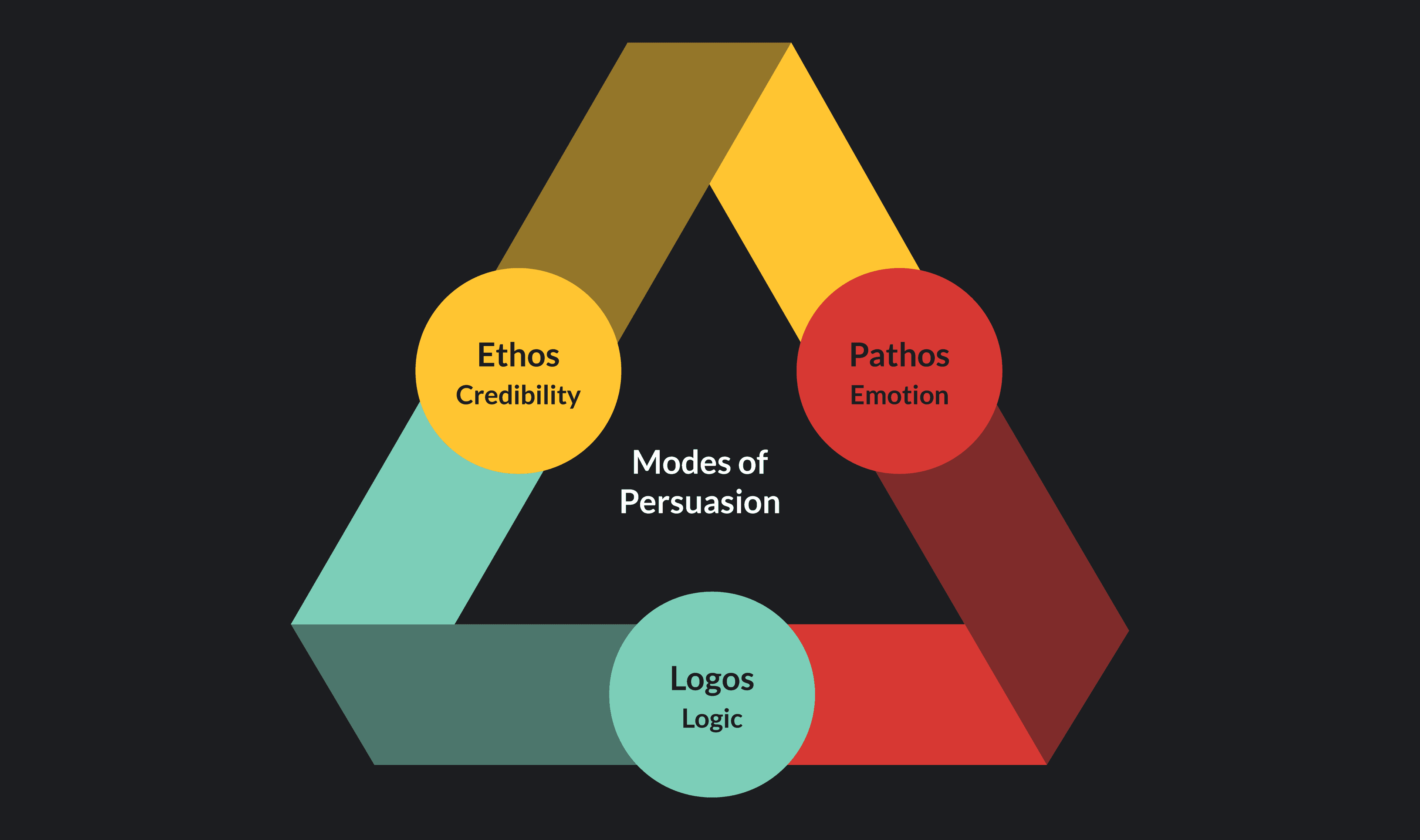
Many students find “ ethos, pathos, and logos ” useful to consider; you want to create an essay that is believable and has both emotion and reason. You need to be the authority on your own life, creating a world for the reader to imagine themselves in, while also giving them logical, tangible experiences to hold on to. Personally, I like the Mary Poppins jumping into the painting approach: you’re drawing a world on the pavement for admissions to jump into. Your story becomes real because it envelops them—they’re getting an insight into your life, your experiences, and your emotions. By the end of the essay, they understand you.
After reading the question, pick out all the keywords and write down as many relevant personal experiences as you can think of. Make connections, go on tangents, explore in and around the theme, and find your compelling story. Sometimes it’s useful to pick a few ideas and explore them thoroughly before you choose the one that works best–sometimes the best ideas come out of nowhere.
Find Your Structure & Outline
Every good essay—whether the word count is 150 or 1500—needs an introduction, somebody paragraphs, and a conclusion. The introduction needs to be the thing that “hooks” the reader in. The middle needs to add some detail, and the conclusion wraps everything up. The story doesn’t have to be linear, but the structure does.
If you’ve got the idea, the writing process will come. Just don’t be afraid! You have to start somewhere, so just write and keep writing. Don’t delete anything in that first draft—even if you hate it or it sounds cheesy. Don’t worry about starting at the beginning—sometimes the middle or the end are good places to start. Also, don’t be afraid to go back a step and brainstorm some more. Most importantly, you should trust yourself.
Edit & Rewrite
A key part of the scholarship essay writing process is editing and rewriting. Essays don’t happen overnight. They require hard work to get right. This step is where you develop your ideas, clarify your thoughts, and find the right structure. You want to ensure that your scholarship essay is easy to read, flowing from one sentence to another and from each structural component to the next. Put it down, come back to it later with fresh eyes, and read it as if you were reading it for the first time. Does it work? Keep going over your essay until you can say “yes” to that question.
Typos, grammatical mistakes, and spelling mistakes are your enemy. Even the most beautiful content can be a letdown by using “their” when you meant “there.” Ensure you check and double check your essay for mistakes and don’t be afraid of using spellcheck, something like Grammarly, or asking a family member to help you. Proofreading should be the final step in your scholarship essay. Once you’ve done everything you can think of to make it the best essay for you, consider it done and don’t look back.
1. Be honest.
These are your scholarship applications and your college future; start with the truth.
2. Follow your passion.
Write about something you love! Not only will it land better with a scholarship committee, but it will actually be easier to write.
3. Focus on what you learned.
The story is important, but what you learned and took from the experience is essential. Colleges want to know that you’ll bring everything you’ve learned with you to college.
4. Self-reflection is key.
Without oversharing, preaching or lecturing, really think critically about what makes you, you. Ask your friends and family members for your best qualities. Think about what you love learning or doing, and be specific—focus in on a particular activity, experience, or personality trait that defines you.
5. Edit, edit, edit.
Proofread, proofread, proofread. Again and again. The little mistakes can make a big difference.
6. Keep it personal.
It may be that you’re applying for a specific scholarship that means you need to connect with a particular social issue, high school experience, technological advancement, or subject. Colleges will be interested in your experience and how you relate to that particular topic or issue.
7. Don’t be afraid to re-use something you’ve already written.
It’s likely you’ve already written something about yourself as part of your application process; as long as they address the prompt and are specific to that scholarship program/university, you can re-use all scholarship essays!
8. Show, don’t tell.
Really paint a picture with your words, describe your emotions, and help the reader imagine everything you experienced.
9. Focus on yourself.
There will be many deserving college students, but focus on what you can bring to the program/scholarship and why your experience is something admissions need to hear. It’s not about other students, it’s about you!
10. Negative experiences aren’t off-limits.
As long as you can describe the positive elements in the negative experience and focus on what you’ve learned, this strategy can really work. Sometimes you learn more from the challenges you overcome.
11. Follow instructions & answer the essay prompt.
It’s an easy thing to forget, but don’t get carried away. Return to the prompt and make sure you do as you’re asked. This includes sticking to the word count.
12. Define your goals.
Ask yourself who you want to become and what skills or personality traits you want to develop. Focus on how this particular college education will help you get there.
13. Do your research.
The most successful scholarship essays will mention specific details about that college, program, major, and other opportunities that you can take advantage of. Read it back to yourself and ask: could this have been written about anywhere? (Try to avoid cliches too.)
14. Have fun!
See any application as an opportunity to share something about yourself in your own words with admissions. These essays are something you have control over.
15. Embrace yourself.
Be yourself and use your own voice. It’s the most powerful tool you have.
About the Author
Bob Patterson is a former Director of Admissions at Stanford University, UNC Chapel Hill, and UC Berkeley; Daisy Hill is the co-author of Uni in the USA…and beyond published by the Good Schools Guide 2019. Together, they have established MyGuidED, a new educational tool for students looking to apply to university (launching 2023).
Degrees+: Discover Online College Unlike Anything You’ve Experienced
Outlier (winner of TIME Best Inventions 2020) and Golden Gate University (#1 school for working professionals) have redesigned the experience of earning a college degree to minimize cost and maximize outcomes. Explore a revolutionary way to earn your college degree:
Related Articles

How To Write The Common Application Essay
Here’s a complete guide on how to write the common application essay. You’ll also learn why you should really consider completing it.
Nick Griffin
Subject Matter Expert

10 Best Scholarships for Online Students [2023]
Lots of scholarships for online students are available. Here’s a list of the top 10 ones around. Also, learn the steps to apply for scholarships.
Jennifer Rivera

How Much You Can Expect From a Scholarship?
We’ll go over the average scholarship amount for full, partial, and small scholarships. Plus, read some useful tips for when you apply.
Further Reading
How to create a budget for college students and save money, top 20 part-time jobs for college students, want to get a job while attending college here’s how, thinking about going back to college in your 30s here’s everything you need to know, most common student loan requirements, certificate vs degree: what’s the real difference.
What are your chances of acceptance?
Calculate for all schools, your chance of acceptance.
Your chancing factors
Extracurriculars.
How to Write a Scholarship Essay
What’s covered:, why do scholarships require essays.
- Types of scholarship essays

How to write a good scholarship essay
What about scholarships that don’t require an essay.
For many, scholarships are a critical part of paying for your college education. That’s why you want to make sure your scholarship applications receive nearly as much of your care and attention as your college applications do. Essays are a huge component of this.
Many scholarships are competitive, drawing highly qualified applicants with excellent grades and test scores. Essays are a way of differentiating students, learning more about their interests, and determining to whom the organization should give the award.
Scholarships are also born out of organizational missions, and the committee wants to see how your values align with theirs. Essays help illuminate these values.
Types of scholarship essays
You’ll encounter several different types of scholarship essays during your search. These are some of the most common varieties you will find.
Career and education goals
Some scholarships target people with particular career ambitions and anticipated majors. This essay prompt is common for those types of awards, as well as more general ones. To approach your essay, you should be authentic, describing your true motivations and why this professional path appeals to you. Let your passion for the industry, sector, or discipline shine through.
Life experiences/qualities/group affinity
When a scholarship targets people of particular demographics, make sure you highlight your affinity with this group in your essay. Describe how these characteristics have contributed to and in some cases shaped your journey — and will continue to do so in your future.
Connection with the institution/organization
Your connection with the institution or organization offering the scholarship often plays a large role in determining winners — so much so that they may ask you to describe why that organization is important to you in your essay. It’s important to do your homework, considering why various aspects of the institution appeal to you and why you want a scholarship from them.
Past writing sample
You may not need to write a new essay at all. The organization could ask you to submit a past writing sample instead. If this is the case, choose a piece that shows your real personality and aligns with the message and mission of the organization offering the scholarship.
1. Understand your audience.
Scholarship committees want to see essays from students who share their organization’s values. Before you apply, you need to do some research to understand what those values are. Consider how your interests and experiences align with what the organization is looking for, and make them clear throughout your essay.
2. Show your personality.
You should also use your voice in your essay. Give the scholarship committee insight into who you are as a person — what drives you, what motivates you, and what interests you. This will allow them to understand you on a deeper level and see your words as genuine.
3. Use anecdotes and examples.
As with your college essays, you’ll bring your experiences to life by using plenty of anecdotes and examples. These will help ground your essay and make it more compelling for your audience.
You may encounter scholarships that don’t require essays. While the applications may be less time-consuming, for the most part, you will need to ensure that your GPA, test scores, and extracurriculars are strong because they will usually play a large role in assessing applicants.
While we’re on the subject of no-essay scholarships, we encourage you to enter CollegeVine’s weekly $500+ scholarship drawings . To get started, you just need to create a free account. Increase your chances of winning by referring friends, peer-reviewing essays, and more.
Related CollegeVine Blog Posts

Username or Email Address
Remember Me Forgot Password?
Prove your humanity
A link to set a new password will be sent to your email address.
Your personal data will be used to support your experience throughout this website, to manage access to your account, and for other purposes described in our privacy policy .
Get New Password -->

How to Write an Effective Scholarship Essay: A Step-by-Step Guide
- July 16, 2023
- Essay Writing , Scholarships & Financial Aid , Student Admission , Under Graduate
Introduction
Scholarship essays play a crucial role in securing financial aid for college education. Crafting a compelling scholarship essay can make all the difference in receiving the financial support you need to pursue your dreams. In this comprehensive guide, we will walk you through the step-by-step process of writing an effective scholarship essay for US colleges. From understanding the prompt to presenting a compelling story, we will provide you with valuable tips and strategies to help you stand out among the pool of applicants and increase your chances of winning scholarships.
- Understand the Prompt
The first and most important step in writing a scholarship essay is understanding the prompt. Take the time to carefully read and analyze the essay prompt to ensure you address all its requirements. Highlight keywords and phrases that indicate what the scholarship committee is looking for. This will help you structure your essay effectively and tailor your response to the specific criteria.
- Research and Reflect
Before you start writing, take some time to research the organization offering the scholarship. Understand their mission, values, and goals. This will allow you to align your essay with their objectives and demonstrate your genuine interest in their cause.
Reflect on your own experiences, achievements, and goals. Think about the moments that have shaped your character, the challenges you have overcome, and the lessons you have learned. Identify your unique qualities and strengths that make you an ideal candidate for the scholarship.
- Develop a Strong Thesis Statement
Crafting a clear and concise thesis statement is crucial for a successful scholarship essay. Your thesis statement should articulate the main theme or message you want to convey throughout your essay. It should be specific, engaging, and relevant to the prompt. This will serve as the foundation for the rest of your essay and guide your writing process.
- Create an Outline
Organizing your thoughts and ideas into a well-structured outline will help you maintain a logical flow throughout your essay. Divide your essay into three main sections: introduction, body paragraphs, and conclusion.
In the introduction, grab the reader’s attention with a compelling hook and provide background information on yourself and the scholarship you are applying for. The body paragraphs should address specific points that support your thesis statement. Use examples, anecdotes, and evidence to illustrate your achievements, goals, and values. Finally, wrap up your essay with a strong conclusion that reinforces your main points and leaves a lasting impression.
- Show, Don’t Tell
To make your scholarship essay stand out, focus on showing rather than telling. Use vivid language, descriptive details, and storytelling techniques to bring your experiences and aspirations to life. Avoid vague statements and clichés. Instead, provide concrete examples and evidence to support your claims. This will make your essay more engaging, authentic, and memorable to the scholarship committee.
- Edit and Proofread
Once you have completed your essay, it’s crucial to edit and proofread it thoroughly. Check for grammatical errors, spelling mistakes, and awkward sentence structures. Ensure your essay flows smoothly and adheres to the required word count. Seek feedback from trusted friends, family members, or teachers to get a fresh perspective on your writing. Their insights can help you refine your essay and make it even stronger.
Here are a few examples of effective essay themes:
- Overcoming Adversity: Share a significant challenge or hardship you have faced in your life and explain how you overcame it. Highlight the lessons you learned and the personal growth that resulted from this experience.
- Passion and Purpose: Discuss your passions, interests, and how they relate to your academic and career goals. Explain how receiving the scholarship would enable you to pursue your dreams and make a positive impact in your chosen field.
- Leadership and Community Involvement : Describe how you have demonstrated leadership skills and made a difference in your community. Highlight any initiatives, projects, or organizations you have been involved in and the impact they have had on others.
- Unique Background or Perspective: If you have a unique background, culture, or perspective, share how it has shaped your worldview and influenced your goals. Emphasize the value of diversity and inclusion in education and how you can contribute to a diverse campus community.
- Academic Excellence: If you have a strong academic record, explain how your achievements demonstrate your commitment to learning and intellectual growth. Discuss your academic goals and how the scholarship will help you further your education.
Remember, the most important aspect of your scholarship essay is authenticity. Be genuine and let your true self shine through your writing. Use specific examples and personal anecdotes to make your essay memorable and compelling. Lastly, always follow the guidelines and instructions provided by the scholarship committee and tailor your essay to meet their criteria.
There are several reputable platforms and resources where you can find examples of well-written scholarship essays. Here are a few suggestions:
- Scholarships.com : Scholarships.com is a popular scholarship search engine that provides a wide range of scholarships for various fields of study. While the main focus is on searching for scholarships, they also offer resources and tips on how to write a winning scholarship essay. You can browse through their blog or resource section for guidance and inspiration.
- College Board’s BigFuture Scholarship Search : The College Board’s BigFuture website not only helps students find scholarships but also provides useful information on the scholarship application process. They offer sample essay questions and tips on writing effective scholarship essays. It’s a great resource to explore for guidance and examples.
- University and College Websites: Many universities and colleges have dedicated sections on their websites where they showcase scholarship recipients and their essays. Visiting the financial aid or scholarship pages of specific institutions can provide you with examples of successful scholarship essays.
- Essay Contests and Writing Competitions: Some organizations and institutions host essay contests and writing competitions that require participants to submit scholarship essays. While participating in these competitions does not guarantee a scholarship, it can give you the opportunity to read winning essays and understand what makes them effective.
Writing an effective scholarship essay requires time, effort, and careful attention to detail. By understanding the prompt, conducting research, developing a strong thesis statement, and showcasing your unique qualities, you can create a compelling essay that sets you apart from other applicants. Remember to edit and proofread your essay before submitting it. With these strategies and tips, you can increase your chances of receiving the financial support you need to pursue your educational goals in US colleges. Good luck!
Check out our scholarship blogs .
Share this:
Leave a reply cancel reply, discover more from stoodnt.
Subscribe now to keep reading and get access to the full archive.
Type your email…
Continue reading
Scholarship Essay Writing
Scholarship Essay Examples

Winning Scholarship Essay Examples for Students: Tips Included
37 min read
Published on: Mar 14, 2021
Last updated on: Jan 31, 2024

People also read
Scholarship Essay - A Complete Writing Guide
Scholarship Essay Format - A Complete Guide
Most Popular Scholarship Essay Prompts & Questions
Share this article
Many students face financial barriers when it comes to pursuing higher education. The rising costs of tuition, books, and other educational expenses can be overwhelming.
This is why the scholarships offer a lifeline by providing financial aid to students, but the competition is fierce.
That's where CollegeEssay.org comes in.
In this blog post, we are providing scholarship essay examples that will inspire and guide you in creating your own exceptional essay.
These examples serve as beacons of success, offering valuable insights into the art of scholarship essay writing.
So, without further ado, let’s get started.
On This Page On This Page -->
Scholarship Essay Examples Financial Need
Why this scholarship essay worked.
This scholarship essay example effectively conveys the applicant's financial need and their determination to overcome the challenges associated with it. Here's why this essay worked:
- Personal Storytelling: The essay begins with a personal anecdote that establishes a connection between the applicant's background and financial constraints. This helps create empathy and demonstrates the genuine impact of financial challenges on their educational journey.
- Resilience and Resourcefulness: The applicant showcases their resilience and resourcefulness in navigating financial hardships. They highlight their proactive approach to seeking part-time employment and actively pursuing scholarships.
- Academic Commitment: Despite the financial strain, the applicant emphasizes their commitment to academic excellence by maintaining a high GPA. This showcases their dedication and ability to prioritize their studies amidst challenging circumstances.
- Community Involvement : The essay also highlights the applicant's involvement in community service. This demonstrates their desire to give back and make a positive impact.
- Connection to Scholarship: The applicant clearly articulates how receiving the scholarship would benefit them. This demonstrates a strong alignment between their goals and the purpose of the scholarship.
Want more examples, check out these winning scholarship essay examples.
Financial Aid Scholarship Essay
Scholarship Essay for Financial Need
Scholarship Essay Examples About Yourself
Why this essay worked.
This scholarship essay worked for several reasons, such as:
- It effectively showcases the applicant's passion for mathematics, community engagement, and resilience.
- It compellingly conveyed the applicant's dedication, ambition, and potential for making a positive impact. This makes them a deserving candidate for the scholarship.
- Clear connection to the scholarship's goals and how it would further the applicant's educational journey and impact.
Here are some scholarship essay examples about yourself; get an idea from them, and create a successful essay.
Scholarship Essay Example About Yourself
Scholarship Essay About Yourself
Scholarship Essay Examples for Nursing
Why this essay worked.
This essay worked due to its compelling portrayal of the applicant's genuine passion for nursing, coupled with their unwavering dedication to making a positive impact in patient care.
The essay effectively demonstrates the applicant's well-rounded preparation for a nursing career and their clear alignment with the goals and mission of the scholarship, making them a strong candidate for consideration.
Below are some more examples of scholarship essays for nursing.
Nursing Scholarship Essay
Scholarship Essay for Nursing
Scholarship Essay Examples About Career Goals
This essay worked for the following reasons:
- Clear and Specific Career Goals: The essay effectively outlines the applicant's career goal of becoming a clinical psychologist specializing in mental health support. The clarity and specificity of the goal demonstrate a well-defined path and a strong sense of purpose.
- Demonstrated Preparation and Commitment: The essay showcases the applicant's comprehensive preparation for their career goals. It also demonstrates their readiness and dedication to excel in the field.
- Alignment with Scholarship Objectives: The essay effectively highlights how the scholarship will contribute to the applicant's career aspirations. This includes attending conferences, workshops, and advanced training programs.
If you find difficulty writing the scholarship essay about career goals, get help from the below-mentioned examples, and submit a well-written essay.
Scholarship Essay Examples About Leadership
Three reasons why this essay worked are:
- Demonstrated Leadership Experience : This essay effectively highlights the applicant's practical experience in leadership roles, showcasing their ability to lead teams, organize events, and coordinate volunteers.
- Commitment to Personal Growth : The essay demonstrates the applicant's proactive approach to leadership development by seeking formal training and participating in workshops focused on honing their skills.
- Emphasis on Collaboration and Empowerment: The essay emphasizes the applicant's belief in collaborative leadership. It promotes inclusivity and empowers team members to contribute their unique perspectives.
Here we gather some good scholarship essay examples about leadership that help in your writing.
Leadership Scholarship Essay Example

Paper Due? Why Suffer? That's our Job!
Scholarship Essay Examples About Community Service
Here are the reasons:
- Genuine Passion and Commitment: The essay effectively conveys the applicant's genuine passion for community service, highlighting their long-standing involvement and the transformative impact it has had on their life.
- Integration of Service with Education: The essay demonstrates the applicant's proactive approach to integrating their passion for community service with their educational pursuits.
- Aspiration for Social Change: The essay goes beyond personal experiences and highlights the applicant's aspirations for broader social change.
Here is an excellent community service scholarship essa y that can help you write for community college.
Scholarship Essay Example about Community Service
High School Scholarship Essay Examples
- Clear and Convincing Goals: The essay effectively communicates the applicant's strong desire to pursue higher education despite financial constraints.
- Demonstrated Leadership and Well-Roundedness: The essay showcases the applicant's involvement in extracurricular activities. It highlights their ability to balance academic responsibilities with active participation in clubs, sports teams, and community service initiatives.
- Emphasis on Giving Back and Community Engagement: The essay not only focuses on the applicant's personal aspirations but also highlights their commitment to giving back to their community.
The following are the best high school scholarship essay examples, use this for your help, and write an attention-grabbing essay.
Scholarship Essay Example for High School
Scholarship Essay for High School
Scholarship Essay Examples for University
Why this essay works.
Three reasons why this essay works are:
- Strong Personal Motivation: The essay effectively communicates the applicant's unwavering commitment and determination to pursue a university education.
- Articulation of Long-Term Goals and Social Impact: The essay goes beyond highlighting the applicant's academic achievements and financial needs. It emphasizes the applicant's desire to contribute to their community and make a positive impact on society.
- The connection between Scholarship and Applicant's Potential: The essay effectively illustrates how receiving the scholarship would directly address the financial burden. Plus, it will enable the applicant to fully embrace the university experience.
Here are some excellent scholarship essay examples for university students that help you in writing the essay.
Scholarship Essay Example for University Students
Scholarship Essay Examples for Engineering
This essay worked because of the following reasons:
- Passion and Commitment: The essay effectively conveys the applicant's deep passion for engineering. It also shows their genuine commitment to making a positive impact in this field.
- Alignment with Scholarship Objectives: It clearly establishes the connection between the scholarship and the applicant's goals in engineering.
- Future Impact and Growth: It also communicates the applicant's aspiration to contribute to the field of engineering and make a positive difference in the world.
The following is another scholarship essay example that can help you in creating the perfect essay on your own.
Scholarship Essay Examples for Masters
This essay worked for several reasons:
- Clear Purpose and Goal: The essay effectively conveys the applicant's clear purpose and goal of pursuing a master's degree. It highlights the transformative impact that a master's degree can have on personal and professional growth.
- Financial Need and Scholarship Alignment : The essay addresses the financial challenges associated with pursuing a master's degree. It demonstrates the direct alignment between the scholarship and the applicant's needs.
- Impact and Giving Back : The essay goes beyond personal aspirations and emphasizes the applicant's intention to make a broader impact on their community and society.
Here is an example that you can use as a guide and write a perfect scholarship essay.
Why Should You Receive this Scholarship Essay Examples
Three brief reasons why this essay worked are:
- Clear and Convincing Arguments : The essay presents concise and compelling arguments to support the applicant's case for receiving the scholarship.
- Personal Connection : It demonstrates how receiving the scholarship would directly impact the applicant's academic journey
- Gratitude and Future Commitment : It expresses sincere gratitude for the opportunity and emphasizes the applicant's commitment to making the most of the scholarship.
Here is an example, take help from them for your scholarship essay.
Why Should You Receive this Scholarship Essay Example
Why I Deserve This Scholarship Essay Examples
- Compelling Personal Story: The essay effectively presents the applicant's personal story and highlights their dedication and commitment to their education
- Addressing Academic Excellence and Financial Need : The essay successfully addresses both academic excellence and financial need, which are two crucial aspects considered by scholarship committees.
- Commitment to Making an Impact: The essay goes beyond the applicant's personal goals and emphasizes their dedication to making a positive impact in their community.
Hereâs another example for this scholarship essay below:
Why I Deserve This Scholarship Essay Example
Tips for Writing the Effective Scholarship Essay
When it comes to writing an effective scholarship essay, there are several key tips to keep in mind.
By following these guidelines, you can maximize your chances of standing out and impressing scholarship selection committees.
Here are some essential tips to help you craft a compelling scholarship essay:
- Understand the Prompt
Take the time to thoroughly understand the essay prompt or topic provided by the scholarship provider. Pay attention to any specific instructions or guidelines given.
- Research the Scholarship
Familiarize yourself with the organization or institution offering the scholarship. Understand their values, mission, and objectives. This knowledge will help you align your essay with their goals and demonstrate your fit for the scholarship.
- Tell Your Unique Story
Use the essay as an opportunity to showcase your personal experiences, like obstacles you might encounter, achievements, and aspirations. Highlight what sets you apart from other applicants. Be authentic and genuine in conveying your story, like overcoming personal failures.
- Start with a Compelling Introduction
Grab the reader's attention from the beginning with a strong and captivating introduction. Consider starting with a compelling anecdote, a thought-provoking question, or a powerful statement.
- Structure Your Essay
Organize your essay into a clear and logical structure. Start with an introduction, followed by body paragraphs that support your main points, and end with a concise and impactful conclusion.
- Be Concise and Specific
Scholarship essays often have a word or character limits, so make every word count. Be concise in your writing and avoid unnecessary fluff. Focus on providing specific examples and details that support your claims.
- Showcase Your Achievements
Highlight your academic accomplishments, extracurricular involvements, community service, leadership roles, or any other relevant achievements. Link them to the values and goals of the scholarship.
- Address the Selection Criteria
Ensure that your essay addresses the selection criteria specified by the scholarship provider. If they are looking for specific qualities or skills, tailor your essay to showcase how you possess those attributes.
In conclusion, writing an effective scholarship essay is a crucial step in securing the financial aid you need for your education.
By following the tips outlined here, you can enhance your essay-writing skills and create a compelling narrative that captivates scholarship selection committees.
Be authentic, concise, and specific in your writing. Tailor your essay to align with the values and objectives of the scholarship provider. And above all, believe in yourself and your potential to make a difference through education.
If you're seeking further guidance and support in your scholarship essay writing journey, consider partnering with our AI essay writing tools !
We also have a team of experienced and professional essay writers who can provide personal essay writing service with valuable insights.
Hire our college paper writing service today and take the next step towards securing the financial aid you deserve.
Barbara P (Literature, Marketing)
Barbara is a highly educated and qualified author with a Ph.D. in public health from an Ivy League university. She has spent a significant amount of time working in the medical field, conducting a thorough study on a variety of health issues. Her work has been published in several major publications.
Paper Due? Why Suffer? That’s our Job!

Keep reading

Legal & Policies
- Privacy Policy
- Cookies Policy
- Terms of Use
- Refunds & Cancellations
- Our Writers
- Success Stories
- Our Guarantees
- Affiliate Program
- Referral Program
- AI Essay Writer
Disclaimer: All client orders are completed by our team of highly qualified human writers. The essays and papers provided by us are not to be used for submission but rather as learning models only.
- Search All Scholarships
- Exclusive Scholarships
- Easy Scholarships to Apply For
- No Essay Scholarships
- Scholarships for HS Juniors
- Scholarships for HS Seniors
- Scholarships for College Students
- Scholarships for Grad Students
- Scholarships for Women
- Scholarships for Black Students
- Scholarships
- Student Loans
- College Admissions
- Financial Aid
- Scholarship Winners
- Scholarship Providers
Student-centric advice and objective recommendations
Higher education has never been more confusing or expensive. Our goal is to help you navigate the very big decisions related to higher ed with objective information and expert advice. Each piece of content on the site is original, based on extensive research, and reviewed by multiple editors, including a subject matter expert. This ensures that all of our content is up-to-date, useful, accurate, and thorough.
Our reviews and recommendations are based on extensive research, testing, and feedback. We may receive commission from links on our website, but that doesn’t affect our editors’ opinions. Our marketing partners don’t review, approve or endorse our editorial content. It’s accurate to the best of our knowledge when posted. You can find a complete list of our partners here .
How to Start a Scholarship Essay (With Examples)

Will Geiger is the co-founder of Scholarships360 and has a decade of experience in college admissions and financial aid. He is a former Senior Assistant Director of Admissions at Kenyon College where he personally reviewed 10,000 admissions applications and essays. Will also managed the Kenyon College merit scholarship program and served on the financial aid appeals committee. He has also worked as an Associate Director of College Counseling at a high school in New Haven, Connecticut. Will earned his master’s in education from the University of Pennsylvania and received his undergraduate degree in history from Wake Forest University.
Learn about our editorial policies

Bill Jack has over a decade of experience in college admissions and financial aid. Since 2008, he has worked at Colby College, Wesleyan University, University of Maine at Farmington, and Bates College.

Maria Geiger is Director of Content at Scholarships360. She is a former online educational technology instructor and adjunct writing instructor. In addition to education reform, Maria’s interests include viewpoint diversity, blended/flipped learning, digital communication, and integrating media/web tools into the curriculum to better facilitate student engagement. Maria earned both a B.A. and an M.A. in English Literature from Monmouth University, an M. Ed. in Education from Monmouth University, and a Virtual Online Teaching Certificate (VOLT) from the University of Pennsylvania.

As an admissions officer, I reviewed thousands of essays for students seeking admission and scholarships. The essay is one of the most important parts of the scholarship application process–a strong essay can go a long way. However, with so much competition, it is important for your scholarship essay to stand out. That’s why it’s important for you to start a scholarship essay off right!
There are some very simple things that you can do to ensure that your essay is engaging from the very first sentence. In fact, beginning your essay with an exciting opening is one of the most important things you can do, because it will immediately distinguish your essay from the others.
Keep on reading to learn more about how you can nail the very first sentence and start your essay off right!
Engage the reader with the first sentence
No matter what type of essay you are writing, you will want to ensure that the very first line grabs the attention of the reader. One of the biggest mistakes that students make when starting their essay is simply restating the prompt. This is bland and boring.
Now, you might be wondering, “how do I engage the reader with the very first line of my essay?”. The good news is that there are several ways that you can do this that are very simple to do.
Related: How to answer scholarship essay questions about your career goals
Begin with dialogue
First, you could begin your essay with conversation. This can be an interesting and unexpected way to start your scholarship essay. Maybe someone asked you an unexpected question? Perhaps you were having an interesting conversation with a friend or family member? Either way, dialogue can be a powerful tool to start your essay.
Apply to these scholarships due soon

$10,000 “No Essay” Scholarship

$2,000 Sallie Mae Scholarship

“Mom to Scholar” Scholarship for Mothers

Niche $25,000 “No Essay” Scholarship

“Gutsy Graduate Student” Essay Scholarship

$25k “Be Bold” No-Essay Scholarship

“College Here I Come” Essay Scholarship for High School Seniors

“Making Waves” Scholarship for Women

$10,000 CollegeXpress Scholarship
Put the reader in your shoes.
Alternatively, you can choose to start your essay by placing the reader right in your shoes and show them something from your life. Appeal to the senses and show the reader what you see, hear, smell, or taste. These specific details will help your essay come to life and make it even more memorable.
Also recommended: What’s the best scholarship essay format?
Scholarship essay introduction example
Next, we’ll look at a specific example of how you can open up your essay. Let’s say you are applying for the Questbridge scholarship program . One of the essays that you will be asked is:
We are interested in learning more about you and the context in which you have grown up, formed your aspirations, and accomplished your academic successes. Please describe the factors and challenges that have most influenced you. How are they shaping your future aspirations?
You might be tempted to rephrase the question and start your essay with something like:
“I have grown up in a rural context and this has formed my aspirations and allowed me to accomplish academic success…”
This is generic and will not engage your reader at all.
Instead, what if you started off your essay with something like this:
“I look outside my bedroom window and see Henry, my favorite chicken, pecking at something in the dirt.”
Makes a big difference, right? As a reader, you are probably wondering: why does this person have chickens outside their bedroom window? Why did they name this particular chicken Henry?
See also: Here are our top writing & essay scholarships for students!
Keep the ending of your essay in mind as you write the opening
While crafting your opening, be open to ideas about how to close your essay. There is no need to stress about the ending now, but being mindful of effective ways to end an essay is always a good idea. Say you are opening your scholarship essay with Henry the chicken. Is there a way for Henry to make an impactful appearance at the end of the essay to close things out in a way that perfectly wraps everything up? The key is for the essay ending to be meaningful and memorable for the reader.
Don’t miss: Our free scholarship search tool
If you can’t think of a “wow” scholarship essay beginning, keep writing!
Sometimes, we know what we want to say, point by point, but we are not ready to be creative when it comes to opening an essay. In that case, keep writing! There is always the option of going back and crafting an engaging opening after your essay is written. Simply write your main idea where the first paragraph would be to guide you as you write. After, go back when your creative juices are flowing, and craft the amazing opening (and closing) that your scholarship essay deserves!
Final thoughts
As shown, there are many questions that we as readers will have after reading an engaging essay opening such as the one just shared; We want to learn more about the student who is writing this essay. After all, as a writer trying to stand out in a pile of essays, that is our main goal.
We hope that you have a better understanding of how to start a scholarship essay so you can maximize your chances of winning scholarships!
Additional resources
Scholarships360 is the go-to for all things college admissions and scholarships! Wondering how to write a 250 word essay and how to write a 500 word essay ? Curious how to write an essay about yourself ? Wow, do we have the resources to help! Additionally, check out our free scholarship search tool to help you finance your college education. Best of luck to you and your future endeavors!
Key Takeaways
- The first sentence of the essay is what makes the reader want to continue reading
- Engage the reader by appealing to the senses
- Create a sense of wonder in your essay, making the reader want to learn more about you
- Keep the ending of the essay in mind as you craft the beginning
Frequently asked questions about how to start a scholarship essay
What is an essay hook, how long should my scholarship essay be.

Apply to vetted scholarship programs in one click
Scholarships360 recommended.

Top 62 No Essay Scholarships in April 2024

Top 246 Scholarships for High School Juniors in April 2024

$20k in Exclusive Scholarships from Scholarships360
Trending now.

Top 46 Easy Scholarships✅ to Apply For in April 2024

Top 1,279 Scholarships for High School Seniors in April 2024

Top Scholarships for Current College Students in April 2024
3 reasons to join scholarships360.
- Automatic entry to our $10,000 No-Essay Scholarship
- Personalized matching to thousands of vetted scholarships
- Quick apply for scholarships exclusive to our platform
By the way...Scholarships360 is 100% free!
- Do My Assignment
- Pay For Essay
- College Paper
- Our writers

Posted: 22 June, 2023
The Ultimate Guide to Writing an Exceptional Scholarship Essay
This comprehensive guide is designed to equip you with the knowledge and skills needed to write a compelling essay that increases your chances of securing a scholarship. Whether you're a high school student preparing for college or a current college student seeking financial aid, this guide will provide you with valuable insights, practical tips, and a clear roadmap to help you create an outstanding scholarship essay.
Table of Contents:
Understanding the Scholarship Essay
Step-by-step guide to writing a scholarship essay, correctly citing your scholarship essay, inspiring topic ideas for your scholarship essay.
- Frequently Asked Questions (FAQ)
By following the guidance provided in this guide, you'll be well-prepared to write an exceptional scholarship essay that effectively communicates your unique qualities, experiences, and aspirations.
Definition and Purpose
A scholarship essay is a written composition that allows you to present yourself, your achievements, and your aspirations to scholarship committees. It serves as a crucial component of your scholarship application, offering a unique opportunity to showcase your qualities, experiences, and goals beyond what can be reflected in your academic records or resume.
The primary purpose of a scholarship essay is to convince the committee that you are a deserving candidate who aligns with the values and objectives of the scholarship provider. Through your essay, you have the chance to demonstrate your potential, passion, and commitment to making a positive impact in your field of study or the broader community.
Importance of Scholarship Essays
Scholarship essays carry significant weight in the evaluation process for scholarship applications. While your academic achievements and extracurricular involvements are important, the essay allows you to present a more personal and comprehensive picture of who you are as an individual.
Scholarship essays provide an opportunity to stand out from other applicants, as they give you a platform to articulate your unique experiences, challenges overcome, and future aspirations. This is your chance to make a memorable impression and differentiate yourself from the competition. Don't waste it and let essay writing services to uncover all your strengths.
Characteristics of an Effective Scholarship Essay
Crafting an effective scholarship essay involves more than just conveying information; it requires careful consideration of the following characteristics:
- Authenticity: Your essay should reflect your genuine voice, thoughts, and experiences. Avoid clichés or trying to present yourself as someone you're not. Be honest, sincere, and let your true personality shine through.
- Coherence and Structure: Organize your essay in a clear and logical manner. Create an introduction that grabs the reader's attention, develop your main ideas in well-structured body paragraphs, and conclude with a memorable ending that leaves a lasting impact.
- Focus and Relevance: Ensure that your essay addresses the specific prompt or guidelines provided by the scholarship committee. Stay focused on the main theme and avoid going off on tangents unrelated to the scholarship criteria.
- Compelling Content: Your essay should captivate the reader and provide compelling reasons why you deserve the scholarship. Use vivid examples, personal anecdotes, and specific details to support your claims and make your essay engaging.
- Proofreading and Editing: Pay attention to grammar, punctuation, and spelling to ensure a polished final product. Review your essay multiple times, seek feedback from others, and make necessary revisions to eliminate errors and improve clarity.
Remember, a well-crafted scholarship essay has the potential to open doors to educational opportunities and financial support.
Pre-writing Stage
Analyzing the Prompt: Carefully read and understand the scholarship essay prompt. Identify the key themes, requirements, and questions the prompt is asking you to address. Highlight or underline the essential elements to ensure you stay focused on the prompt throughout the writing process.
Example prompt: "Describe a personal experience that has significantly impacted your academic journey and explain how it has shaped your future goals."
Researching the Scholarship Provider: Take the time to research the scholarship provider, their mission, values, and any specific criteria they prioritize. This will help you tailor your essay to align with their objectives and demonstrate your compatibility with their organization.
Example research findings: The scholarship provider emphasizes supporting students from underrepresented backgrounds who have demonstrated resilience in overcoming challenges.
Brainstorming Ideas: Engage in brainstorming activities to generate ideas and gather relevant experiences or accomplishments to include in your essay. Consider personal stories, academic achievements, extracurricular involvements, community service, and any unique perspectives or qualities you possess.
Example brainstorming ideas:
- Overcoming financial hardships to pursue education
- Volunteering at a local community center and mentoring younger students
- Research project on sustainable energy solutions
Writing Stage
Developing a Strong Introduction: Craft an attention-grabbing introduction that hooks the reader and introduces the main theme of your essay. Consider using a compelling anecdote, a thought-provoking question, or a powerful statement to make an impact from the beginning.
Example introduction: "As I sat in the dimly lit room, surrounded by stacks of textbooks and the remnants of a sleepless night, I realized that my journey to pursue higher education would be one of resilience, determination, and unwavering passion."
Constructing the Body Paragraphs: Organize your essay's body paragraphs around your main ideas or key experiences. Each paragraph should have a clear topic sentence and supporting evidence to strengthen your arguments. Use specific examples, vivid descriptions, and relevant anecdotes to illustrate your points effectively.
Example body paragraph (topic: overcoming financial hardships): "Growing up in a single-parent household with limited financial resources, I witnessed firsthand the obstacles that hindered educational opportunities. Despite the financial hardships we faced, I remained resolute in my pursuit of knowledge. I took on part-time jobs after school, eagerly saving every penny to contribute to my future education."
Creating a Memorable Conclusion: End your essay with a strong conclusion that reinforces your main ideas and leaves a lasting impression on the reader. Reflect on your experiences, emphasize the significance of the lessons learned, and connect them to your future goals and aspirations.
Example conclusion: "Through the challenges I have faced, I have developed an unwavering determination to overcome obstacles and a drive to create positive change in my community. As I embark on my academic journey, I am committed to using my education as a catalyst for social transformation. This scholarship would not only provide me with the financial support I need but also validate the belief that resilience and determination can break down barriers and pave the way for a brighter future."
Post-writing Stage
- Editing and Proofreading: Review your essay for grammar, spelling, and punctuation errors. Ensure that your sentences are clear and concise. Read your essay aloud or ask someone else to proofread it for you to catch any mistakes or areas that need improvement.
- Seeking Feedback and Revisions: Share your essay with trusted individuals, such as teachers, mentors, or family members, and ask for their feedback. Consider their suggestions for improvement and revise your essay accordingly. Pay attention to the clarity of your message, the flow of ideas, and the overall impact of your essay.
- Finalizing Your Essay: Make the necessary revisions based on the feedback you received and proofread your essay one final time. Ensure that it adheres to any specific formatting guidelines provided by the scholarship committee. Consider creating a visually appealing layout by using appropriate headings, subheadings, and formatting techniques to enhance readability.
Remember, your scholarship essay is a reflection of your unique experiences, aspirations, and potential. It is an opportunity to showcase your strengths, resilience, and commitment to your academic and personal growth. By following these steps and putting effort into each stage of the writing process, you can create a compelling scholarship essay that stands out from the competition.
Understanding Citation Styles
When writing a scholarship essay, it is important to adhere to the appropriate citation style to give credit to the sources you have used and maintain academic integrity. Here are three popular citation styles:
MLA (Modern Language Association) Style: MLA style is commonly used in humanities and liberal arts disciplines. It emphasizes author-page citations within the essay and provides a Works Cited page at the end. MLA uses in-text parenthetical citations with the author's last name and the page number.
Example in-text citation (MLA): "According to Smith, this research demonstrates significant advancements in the field of renewable energy (45)."
APA (American Psychological Association) Style: APA style is commonly used in social sciences and education. It includes in-text citations and a References page at the end. APA uses author-date citations within the text, with the author's last name and the publication year.
Example in-text citation (APA): "Recent research has shown significant progress in the field of renewable energy (Smith, 2020)."
Chicago Manual of Style: The Chicago style is commonly used in history, arts, and humanities. It offers two citation systems: notes and bibliography (footnote or endnote citations) and author-date citations. The style you choose will depend on the requirements of your scholarship application.
Example footnote citation (Chicago): "The research indicates a remarkable advancement in the field of renewable energy." 1
In-text Citations and Reference Lists
- Formatting Guidelines: When including in-text citations, ensure consistency in formatting and placement. Typically, citations are placed immediately after the referenced information, whether within the sentence or at the end of a quotation. Use quotation marks for direct quotes and paraphrase or summarize information without them.
Book: Author's Last Name, Author's First Name. Title of Book. Publication City: Publisher, Year.
Example (MLA): Smith, John. The Power of Renewable Energy. New York: Penguin Books, 2022.
Journal Article: Author's Last Name, Author's First Name. "Title of Article." Journal Title, volume number, issue number (Year): page range.
Example (APA): Smith, J. (2021). Advancements in Renewable Energy Technologies. Journal of Sustainable Energy, 15(2), 45-60.
Website: Author's Last Name, Author's First Name (if available) or Organization Name. "Title of Web Page or Article." Website Name, Publication Date or Update Date, URL.
Example (Chicago): Atasu, Atalay. "The Dark Side of Solar Power." Harvard Business Review, accessed June 18, 2021, https://hbr.org/2021/06/the-dark-side-of-solar-power.
Ensure that you include a corresponding entry in your reference list or bibliography, formatted according to the citation style you are using.
By correctly citing your sources, you demonstrate your commitment to academic honesty and give credit to the original authors. This not only strengthens the credibility of your scholarship essay but also showcases your research skills and professionalism.
A well-chosen topic can make your scholarship essay stand out from the rest. Here are 20 topic ideas to inspire and guide you as you craft your essay:
- Overcoming Personal Challenges: Discuss a significant obstacle you have faced and how you have grown from it.
- Academic and Career Goals: Share your aspirations, explaining how the scholarship will help you achieve them.
- Leadership and Community Involvement: Highlight your leadership experiences and the impact you have made in your community.
- Passion for a Specific Field or Discipline: Explain your deep interest in a particular subject and how it drives your academic pursuits.
- Cultural Experiences and Diversity: Reflect on your multicultural background or experiences that have shaped your perspective.
- Impactful Volunteer Work: Discuss your involvement in volunteer activities and how it has shaped your values and goals.
- Innovations and Entrepreneurial Aspirations: Describe any innovative ideas or entrepreneurial ventures you have pursued or plan to pursue.
- Future Contributions to Society: Articulate how you aim to make a positive difference in your chosen field or society at large.
- Research and Academic Achievements: Highlight your academic accomplishments and any significant research projects or publications.
- Personal Values and Ethics: Discuss the values that guide your actions and decisions, and how they align with the scholarship's mission.
- Experiences as a First-Generation College Student: Share the unique challenges and triumphs of being the first in your family to pursue higher education.
- Overcoming Adversity: Discuss how you have overcome adversity, such as illness, loss, or discrimination, and emerged stronger.
- Mentorship and Support: Describe the role of mentors or supportive individuals in your academic and personal growth.
- Environmental Stewardship: Explain your commitment to environmental conservation and sustainable practices.
- Promoting Social Justice: Discuss your advocacy efforts and how you aim to address social inequalities.
- International Experiences: Share how studying abroad or engaging in cross-cultural experiences has broadened your perspective.
- Artistic Expression and Creativity: Discuss how your artistic talents or creative pursuits contribute to your personal and academic growth.
- Pursuing Higher Education Against the Odds: Highlight the challenges you have overcome to pursue education and your determination to succeed.
- Women in STEM: Discuss your experiences and aspirations as a woman in a STEM field, emphasizing the importance of gender diversity.
- Lessons from Failure: Reflect on a failure or setback and discuss the lessons you have learned from it.
Remember, these topics serve as starting points. Personalize them to reflect your unique experiences and aspirations. Choose a topic that resonates with you, allowing you to showcase your authentic self and connect with the scholarship committee on a deeper level.
Scholarship Essay FAQ
Writing a scholarship essay can raise several questions. Here, we address some frequently asked questions to provide you with additional guidance and clarity:
How long should a scholarship essay be?
The length of a scholarship essay varies depending on the specific requirements of the scholarship provider. However, most scholarship essays typically range from 500 to 1,000 words. It's important to adhere to the specified word limit and ensure that your essay is concise, focused, and well-developed.
Can I reuse a scholarship essay for multiple applications?
While it may be tempting to reuse the same essay for multiple scholarship applications, it's crucial to tailor your essay to each specific scholarship. Take the time to carefully read and understand the prompt for each application, and make necessary revisions to address the unique requirements and expectations of each scholarship provider.
Should I include personal anecdotes in my essay?
Including personal anecdotes can add depth and authenticity to your scholarship essay. Personal stories provide insights into your character, experiences, and values. Choose anecdotes that directly relate to the prompt and help illustrate your main points effectively. However, ensure that your anecdotes are concise and relevant to avoid going off-topic.
How do I make my scholarship essay stand out?
To make your scholarship essay stand out, focus on showcasing your unique experiences, perspectives, and aspirations. Avoid generic or clichéd responses. Use vivid language, specific examples, and thoughtful insights to captivate the reader's attention. Be authentic, passionate, and demonstrate a genuine connection to the scholarship's mission and values.
Should I seek feedback on my essay?
Seeking feedback on your scholarship essay is highly recommended. Share your essay with trusted individuals such as teachers, mentors, or family members who can provide constructive criticism and valuable insights. Consider their suggestions and revise your essay accordingly. However, remember that ultimately, the essay should reflect your voice and ideas.
How important is grammar and spelling in a scholarship essay?
Proper grammar and spelling are essential in a scholarship essay. Grammatical errors and spelling mistakes can distract the reader and diminish the overall quality of your essay. Proofread your essay carefully, use grammar-checking tools, and consider seeking help from others to ensure your essay is error-free and polished.
Should I include a conclusion in my essay?
Yes, including a conclusion is crucial in a scholarship essay. A well-crafted conclusion summarizes your main points, reinforces the significance of your experiences, and leaves a lasting impression on the reader. Use the conclusion to tie your essay together and reiterate your qualifications and commitment to the scholarship's objectives.
Remember, every scholarship essay is an opportunity to present your unique qualities and aspirations. Put effort into crafting a compelling essay that showcases your strengths, experiences, and potential. Tailor your essay to each scholarship application, and ensure that it reflects your authentic self.
In conclusion, writing a scholarship essay requires careful planning, thoughtful reflection, and effective communication. By following the steps outlined in this guide, you can confidently navigate the process and increase your chances of securing the scholarship funding you deserve. Good luck with your scholarship essay!
Written by Professor Wood
Henry Wood is an esteemed academic writing expert holding a distinguished degree in English and American studies. With an exceptional command over language and a wealth of knowledge, he brings a scholarly perspective to BoomEssays blog, offering insightful essay writing tips and guidance rooted in academic excellence.
6 Awesome Scholarship Essays That Worked
When it comes to paying for college, scholarships are the best form of financial aid, since they offer students free money that never needs to be repaid. But let’s face it: completing scholarship applications, especially the essays, can feel overwhelming. The scholarship essay is arguably the most important part of the application and should be well-thought-out. In this article, we’ll walk through five scholarship essay examples and explain why they worked, so that you can write your own winning scholarship essays .
Here are 6 winning scholarship essay examples that worked:
Why this scholarship essay example worked:, how could this essay have been better , want more resources on writing your scholarship essay, get started with your scholarship essay.
The essay is your chance to let your personality and life experiences shine through, giving you the opportunity to stand out from other applicants.
The best way to get an idea of what scholarship committees are looking for is to look over scholarship essay examples from past winners. Take some time to analyze the writing style, think about the strong points, and consider how you can improve. Below, we’ll show you just how you might dissect a scholarship essay.

1. Going Merry Scholarship Success Story by Gabby DeMott
What’s a winning scholarship essay look like? Check out this Going Merry success story with Gabby DeMott.
ESSAY PROMPT: Discuss an accomplishment, event, or realization that sparked a period of personal growth and a new understanding of yourself or others.
“There were only a few minutes to go and our eyes were glued to the screen. On the edge of our seats, clutching whoever happened to be next to us, we watched as the referee blew his whistle and the German players took their free kick. The ball was hit with precision and skill; it flew up over the Swedish players, past their goalie, and was caught safely in the back of the opposing team’s net. We all jumped up and screamed, a mixture of German and English, of excitement and relief, of pride and anticipation.
We stood, enraptured, for the last several minutes of the game as Germany kept its 2-1 lead over Sweden. The horde of us, Germans and Americans alike, hugged and cheered and made our way out onto the balcony, where we chanted “Deutschland! Deutschland! Deutschland!” for the whole village, the whole country, the whole world to hear. Never have I felt so accepted while being an outsider, so proud of a country that isn’t even mine, so part of something I didn’t really belong to.
My German friends didn’t care that we were from different countries; they didn’t care that we would only be staying for three weeks. They accepted us into their homes and their daily lives, their traditions and their celebrations. In watching that World Cup game, it didn’t matter that we were from different places; we were all cheering for the same team. The acceptance I felt in Germany extended beyond that living room. I came to the country on a three week exchange with ten other students from my school.
We each stayed with host families and attended the Wildermuth Gymnasium, which was surprisingly accommodating to a gaggle of loud American teenagers. The teachers were friendly and welcoming, the students treated us like ordinary peers, and even the people I interacted with in public were understanding.
Before coming to Germany I feared judgment based on my level of the language (which is nowhere near as good as the German students’ English) and American politics. It was intimidating to be in a country with limited knowledge of the language and the customs, even though everyone was welcoming. People did ask myself and the other students about the US’s political climate, but no one blamed us for it. They recognized that we were outsiders, that the place we came from had flaws, and they accepted us anyway.
Since that trip, I’ve found myself trying to provide that acceptance to people in my own country. For example, I work at a canoe livery and we receive a lot of visitors with limited English. Some of my coworkers will avoid such customers because they don’t want to take the time to explain things, to exercise patience with someone who may not understand them. If people had done this to me in Germany, my time there would have been much less enjoyable; in fact, I would have been offended.
So now when someone walks up to me at the livery and asks a question in English that isn’t perfect, I smile and welcome them. I take my time to make sure they understand, that they can have a good time, and that they feel accepted. It’s a small action, but I know firsthand that it can make a big impact, at my place of work and in the world. “
- It shares a personal story of realization. Gabby’s essay throws us right in the middle of the action in her story, from her perspective. She paints a clear picture of where she is, how she feels, and what her goals were in that moment. She then goes on to explain the unity of the German and American students to introduce other people in the essay. LESSON TO TAKE : When including additional people in an essay, introduce them early on so you can continue telling your story in an organic way.
- She reflects on her previous fears and explains how she’s moved past those to grow. In the fifth paragraph, Gabby shares how she feared judgment due to her level of the German language and American politics. As Gabby became more familiar with the host families and her German friends, she realizes they accepted her, and she relaxes. LESSON TO TAKE: Sharing a story in sequential order can help illustrate personal growth and how your character changed for the better.
- She answers the prompt and demonstrates how she’ll put her newfound knowledge in action. Once Gabby realized her German friends and host family accepted her, regardless of her fears, that sparked a realization for her when she returned home to America. Gabby concludes her essay by explaining how she’s providing that same acceptance she received in another country to acquaintances and people in her country, to be patient, help them enjoy themselves, and to welcome them. LESSON TO TAKE : Consider concluding your essay with a wrap-up of what you learned, and how you plan to apply that lesson in your life.
2. Who is a “Good” Doctor? by Joseph Lee
Below is a winning essay from Joseph Lee, Rush Medical College for the Giva Scholarship.
ESSAY PROMPT: Who is (or what makes) a good doctor?
“Had you asked me the same question one year ago, my answer would have been vastly different to the one I will give today. In the summer of 2012, with my first year of medical school completed, I embarked upon my last official summer vacation with two things in mind: a basketball tournament in Dallas and one in Atlanta. My closest friends and I had been playing in tournaments for the past 10 summers, and it was a sacred bond forged together in the name of competition. However, two weeks before our first tournament, I became instantly and overwhelmingly short of breath. Having been born to Korean immigrant parents, I was raised to utilize the hospital in emergency cases only, and I knew this was such a case. A few scans later, doctors discovered numerous pulmonary emboli (PE), caused by a subclavian deep vein thrombosis (DVT), and just like that, I was lying in a bed of a major hospital for a life threatening condition.
Fast forward a few months, and I am lying in a similar bed to treat the underlying cause of the subclavian DVT: a first rib removal. There is little that can adequately prepare someone physically, emotionally or spiritually to undergo surgery; and my thoughts continued to race in the days following. In addition to the expected physical pain, isolation, fear and frustration were a few of the emotions I experienced in the four day ordeal. The procedure went according to plan thanks to a skilled surgeon and his team, but the attributes that made the doctor “good” went far beyond his ability to operate.
“Wow. I’m glad you are feeling better” and “I can’t believe you went through that” are common reactions people have when they see the scars on my upper chest. Quite frankly, the past nine months have been difficult, literally full of blood, sweat and tears. But through it all, I have been able to maintain my positivity and gratitude knowing that I have gained the invaluable experience of being a patient and discovering the vulnerability and trust that patients give their doctors. Patients indulge information to doctors that they may have never told anyone in their life and in doing so, place a great deal of trust and responsibility in the hands of a doctor. Many patients will not understand the mechanism of disease behind their condition and anticipate that the doctor will explain to them and their family why it is that they are feeling the way they are and ultimately heal them. And that is precisely what my surgeon understood: the privilege of being able to care for patients and the intimacy of the doctor-patient relationship. And as I awoke to the care of my worried parents, the first thing they wanted to discuss was the details of the procedure that was methodically and patiently explained to them by my “good” doctor.
In study after study, patients have reported dissatisfaction with their medical care, not because of lack of knowledge or health outcome, but because their doctors did not show enough warmth in the encounter or listen to the patient’s questions and concerns. There are few times where a patient and their loved ones are more vulnerable and in need of compassion than when dealing with a hospitalization. And for some doctors, a patient may be another item on a checklist, but that patient is someone’s mother or father, son or daughter, sister or brother. My “good” doctor understood this and would often say “If you were my son…” when discussing treatment options, reflecting on the type of care he would want for his family and treating me similarly. Such ideals are rooted in love and compassion for patients, not as clients in the health care system, but as fellow human beings striving to make something of themselves and the world around them (I).
Unfortunately, the ordeal of living with a chronic illness or undergoing a major operation extends beyond the confines of the hospital. Whether it is creditors harassing patients for medical bills, prescriptions that need to be refilled, or lifestyle modifications that need to be made, the health care experience doesn’t end when a patient walks out of the hospital doors. It often takes merely a minute, as in the case of the “good” doctor who told me that as a student I could apply to get the procedure financially covered by the hospital. Such foresight in anticipating financial concerns and directing me on the next steps to be taken provided relief in the surmounting stress.
Lastly, the “good” doctor understands that as our patients are human, so are we. This means we will make mistakes, some of which can result in life-threatening consequences. With that said, the “good” doctor practices humility and honesty, apologizing and sharing as much information with patients as possible. Although no one strives to make mistakes, they will happen, and how one reacts to them is a distinguishing feature of the “good” doctor (II).
Of all the qualities I tried to explain in what makes a “good” doctor, there was no emphasis on skill and knowledge. And while being able to fulfill the duties of making the correct diagnosis and appropriate treatment plans is expected, the intangibles of love, compassion, foresight and honesty is what makes a doctor, “good”. I learned such lessons in the purest manner possible, by being a patient myself, and will use them to guide me in all future patient encounters, as I strive to be a “good” doctor.”
- It tells a captivating story. This essay immediately pulls the reader in, immersing the audience right in the story. . We want to know how Joseph’s definition of a good doctor changed and why it did so. Hooking your reader from the first sentence of your essay or even the first paragraph is a surefire way to keep your reader engaged in the story you’re telling. The story itself is also told really well, with good pacing and just enough detail to elicit empathy without causing boredom. (He could have easily given too much scientific/medical detail!) LESSON TO TAKE : When telling an anecdote, consider how much detail is the right amount, to make it engaging.
- It’s a list, without you realizing it’s a list. After the first 2 paragraphs (which are mostly story-telling), the rest of the essay is effectively a list of ways that doctors are “good”: they recognize the intimacy and trust involved in the doctor-patient relationship (paragraphs 3-4), they anticipate future sources of patient stress (paragraph 5), and they exercise humility (paragraph 6). Joseph could have easily structured the essay simply by saying “There are 3 main things that make a doctor good” and then explaining each idea. However, that would have been much more boring! Instead, he expertly hides the list format, by couching it in an engaging story. LESSON TO TAKE: Not all list-type essays need to feel like lists.
- It’s personal and believable. Joseph takes a negative personal experience, shows what he learned from it and how it caused him to grow as a person. Sometimes essays about singular, defining moments or experiences can seem blown out of proportion and thus not credible. This one feels right: a big ordeal in his life that has therefore shifted his perspective. LESSON TO TAKE : Consider which personal stories to tell, and make sure the “size” of the story feels right.
3. Life Happens Scholarship by Emily Trader
Here is an example of a moving scholarship essay on the topic of family loss by Emily Trader for the Life Happens award.
ESSAY PROMPT: How has the death of a parent or guardian impacted your life financially and emotionally? Be sure to describe how the loss of your parent/guardian impacted your college plans, and explain how the lack of adequate (or any) life insurance coverage has impacted your family’s financial situation.
“When I was seventeen years old, my father lost his battle with kidney failure and cardiovascular disease. As long as I shall live, I do not believe that I will ever forget the first moment I saw my father’s once vibrant face in that cold and unforgiving casket. I won’t forget his lifeless and defeated hands, or how his pale lips would never utter another joke or speak to his grandchildren. Even though the day of his funeral was undoubtedly the worst day of my life, I wish I could relive it just to be with him one more time. Since that moment, I have felt as if all of my grief and longing resides underneath my skin with nothing to relieve the pressure. On September 8th, 2016, I lost my voice of reason, my confidant, my cheerleader, and my best friend.
Unbeknownst to me at the time, I had lost so much more. Upon my father’s passing, he left us with funeral and medical expenses that his insurance would not cover. Because he did not have any form of life insurance, the financial burden of his death was now the responsibility of my mother and me. Even though my mother works night shifts as a neonatal nurse and her commute is nearly two hours, she was forced to pick up extra shifts to support my family. Though I already had a job and I worked about ten hours a week, I now work anywhere from twenty-five to thirty-five hours a week, and I am also a full-time high honor student. Even though the death of my father forced me to realize the importance of cherishing time with my family, I do not see them very often because of our busy schedules. I also sacrificed my social life and the joy that every senior in high school should experience. Instead of football games and homecoming, I had to deal with mourning and the possibility that I would not attend college because of my family’s financial troubles.
If my father had a life insurance policy, we would not have to work ourselves to the bone and sacrifice our physical and emotional well-being to keep up with expenses. I would not have to worry so intensely about the future of my education on top of the crippling grief that I have felt over the last five months. If this devastating experience has taught me anything, it is this: financial planning for these situations is absolutely invaluable. I will not soon forget the stress and despair that I have experienced, and I now realize that to have a life insurance policy is to throw your surviving family members a crucial lifeline. Though no one can ever prepare you for the trauma of losing a parent, life insurance allows you to grieve without the constant stress of financial burden, and for that reason, it is an absolutely essential precaution.
I love and miss you so much, Dad. Thank God I will see you again.”
- She answers the prompt . It would be easy to write an essay that just spoke to her grief, or to what her father was like and how much he meant to her. But the essay prompt asks applicants to reflect on how the loss has affected the student emotionally and financially. Emily does a great job of this, by connecting the financial parts (she and her mother needing to pick up extra hours of work), with the emotional (due to the work schedule, the family not being able to spend as much time together). She also addresses how this might affect her college plans. LESSON TO TAKE :
- She provides (beautiful) detail. The first paragraph immediately pulls the reader in because of the detailed description she provides (“ his lifeless and defeated hands”, “pale lips” ). Similarly, the specificity of how her family is shouldering the financial burden (e.g. her working 25-to-35-hour weeks) make it feel more real rather than generic. LESSON TO TAKE : Use details and descriptions to make something feel more emotional and tangible.
- She knows her audience . This scholarship is funded by Life Happens, an organization formed by seven leading insurance providers, in order to educate the public about important insurance planning topics. Clearly Emily researched the provider and understood that an essay that spoke to the importance of insurance planning would be well-received by the essay readers. LESSON TO TAKE : Research the scholarship provider and adjust your content to fit the organization’s or company’s mission statement (or business model).
4. Going Merry Scholarship Success Story by Jesus Adrian Arroyo-Ramirez
Jesús Adrian Arroyo-Ramirez wrote a winning scholarship essay (and video!) that he submitted on Going Merry . He earned an outstanding $40,000 through the Golden Door Scholarship.
ESSAY PROMPT: What differentiates you from the hundreds of DACA students who apply to our scholarship? Use one of those opportunities to tell us something else we cannot see just by looking at your grades, test scores, and transcripts.
“I always knew I was different than my friends in some way. Growing up, I struggled to speak English while everyone else had little to no problems. I needed extra help in school while my friends coasted by with ease. My friends would hop on planes and travel all around the world while I had to stay at home. At the age of 13 all of my friends started driving while I still couldn’t.
I built up the courage and asked my mother why I did not have access to the simple liberties everyone else did. My name Is Jesus Adrian Arroyo-Ramirez, and I was illegally brought to this country when I was just six years old. At the time I had no clue that I was breaking any laws, and I did not realize the fact that my life was going to change forever. Growing up with a different citizenship situation than my peers was and still is the biggest challenge I have to face in my life.
Looking back there is not a single thing that I would change. Knowing that I had to work harder than everyone else lead me to be the person that I am today. I took that fire inside of me, pushed myself, graduated first in my class with a cumulative 4.0 GPA, became a Kansas Scholar, and graduated High School with a semester’s worth of college credit. In November of 2016, everything began to look up for me. I received a work permit and a social security card all thanks to the DACA program. I was finally able to get my license, get a job, and most importantly attend college.
I plan to continue my success in the classroom and do everything to the best of my ability as I know that under my current circumstances it can all be ripped away from me at any moment. Growing up with my situation has taught me to not take advantage of a single opportunity. There has been continued support around me past and current and I know there are people out there rooting for my success. I will strive to be the first generation in my family to graduate from an American University and I will set a stepping stone for my future family so they will not have to struggle as I did. My citizenship is not a setback, it is a mere obstacle that I will always learn to work around if it means giving my future children a better life, just like my mother did for me.”
- He shares how hardships made him who he is today. Right off the bat, Jesus sets the tone for his essay by sharing how he struggled to speak English and that he was not given the same opportunities as his peers. He shares his mother’s explanation on why he lived a different life, along with his honesty in the challenges of growing up with a different citizenship situation than the teens around him. LESSON TO TAKE : Share personal details (as you feel comfortable), and consider including a defining memory or conversation hat contributes to your story. This can help paint a picture of your beginnings or your inspirations.
- He includes emotional details. Although Jesus grew up with hardships, he persevered and mentions he wouldn’t change anything. It may have taken a little longer than his peers to get his license, but he also excelled in school, pushed himself to graduate first in class, and take college courses on top of all that. LESSON TO TAKE : Tell your story with details, feelings, thoughts and emotions to explain where you came from and where you are now.
- He plans for the future . Jesus shared his personal story with us, and then explains how he plans to continue his success without letting anything get in the way of his path. He goes on to say his citizenship is not a setback, and that he works to provide a better life for himself and for his future children. LESSON TO TAKE : Include your plan at the end of the essay. Consider how you’ve grown and how you will bring these lessons learned with you to help your future.
5. Why College Is Important to Me by Nicole Kuznetsov
Here’s an example of a simple yet creative and heartfelt essay on the popular prompt, Why is college important to you?
ESSAY PROMPT: Why do you want to go to college? Why is it important to you?
“As a child, my life had structure. Coloring books had lines, letters took on very specific shapes, and a system of rules governed everything from board games to the classroom. I found comfort in the fact that my future had an easy-to-follow template: elementary, middle, and high school, college, job, family retirement, “happily ever after” ending. When I graduated from elementary school I was told I completed 25% of my education. During my middle school graduation, I was told I was halfway there and I know I’ll be told I’m 75% done when I throw my cap in the air this June. College was always factored into the percentage and the overall formula for life. And I never questioned its importance. I always figured it is important because it is necessary.
Going to college makes sense. From helping my parents land stable jobs after coming to America to giving my brother the chance to gain work experience at some of the top financial firms, college educations have shown their worth in my family. Yet I didn’t think about what actually goes on inside the magical universities until I entered high school. Applying to the Academy for Math, Science, and Engineering was the first time I had actively made a decision in my education. With the encouragement of my parents and favorite science teacher who recognized that I would excel in the challenging environment of like-minded students, I applied. Four years later, I can confidently say they were right.
My class of twenty-six has shown me the benefits of a collaborative rather than a competitive environment, especially the impact that camaraderie with my peers has on our collective learning experience. Each student has an inspiring level of passion and motivation that made me excited to learn, work on projects, and participate in discussions both in and out of the classroom. I used my education to gain skills and open doors for myself such as an internship at my local hospital. I gained confidence in my abilities to communicate with individuals from strangers my age to practicing professionals. I was thinking longer and harder than I ever had before to solve individual problems and large-scale challenges. In all honesty, I was having fun.
Looking back on my years at the Academy I realize how big of an impact the school made on how I view education. I wasn’t coming to school to mark another day off my calendar and inch closer to finishing the next 25%. I came to school to learn and question and push myself. Now, as a senior, I’m excited. I’m thankful for the sample that my high school gave me of what learning is supposed to be like and thankful that it left me wanting more. I’m entering college in August with a new understanding of its importance. It is important because it is what I want for my future.”
- It finds structure through chronology . This essay is basically structured like a chronological timeline: As a child, I believed this. Then I applied to this high school (my first active academic decision). Then the high school changed me. Now I’m a senior and I believe this. Not all stories are best told in time order, but the simplest stories often are. And simple stories provide structure, which scholarship committees love. LESSON TO TAKE: Consider structuring your essay like a timeline, emphasizing the milestones along the way that have led you to where you are today.
- It is simply told . While the essay is descriptive, it doesn’t try to get fancy with overly flowery language or unnecessarily long SAT words. And that’s the strength of it. For instance, this passage [“ College was always factored into the percentage and the overall formula for life. And I never questioned its importance. I always figured it is important because it is necessary” ] explains her child’s logic in a really clear and well-written way.
- It’s got (mostly) great topic sentences . We here at Going Merry love a good topic sentence– that is, a sentence at the beginning (or end) of a paragraph that summarizes the rest of the paragraph. It helps “signpost” the most important parts of your essay. Here, three of the four paragraphs (1, 2, and 4) have strong and concise topic sentences. “As a child, my life had structure” sets up the rest of the paragraph to explain what these structures and unquestioned rules were. “Going to college makes sense” sets up why college made sense to her parents.
6. Financial Literacy for Hispanic Women by Rosaisha Ozoria
The inaugural Founder’s Scholarship supported by the New York Women’s Bond Club in honor of Michaela Walsh goes to two New York City public high school students who won an essay competition writing about their hopes for the future of women and girls worldwide . Winners of this scholarship won a trip to accompany Women’s World Banking to Amman, Jordan for their biennial gathering of WWB network members.
PROMPT: Write about your hopes for the future of women and girls worldwide.
WINNING ESSAY:
“Twice a week I head down to volunteer at the Los Sures Social Services office, situated next to the local senior citizen home, to help at the food pantry. We distribute food to people in my neighborhood. Many are familiar faces. Many are middle-aged Hispanic women with children dangling from their hips like grass skirts. These women are there as a result of their culture and lack of financial knowledge. In our Spanish culture, patriarchy prevents women from preparing for themselves as much as they should. This leads to Hispanic women having little or no money management skills. Financial illiteracy is a major issue in my neighborhood, and that is why I hope to give Hispanic women a chance for a better future through financial education.
While I was volunteering I met a woman who happened to live in the same building as my aunt. Unemployed with two young children, and a husband earning minimum wage at a fast food restaurant, she struggled to get by every day. I thought to myself – many in my community are just like her. Then I realized I could do something to help. How? I can start a financial literacy program, which teaches Hispanic women to earn and manage money. Once a woman becomes financially literate, she is capable of making good personal and professional decisions, empowering her to improve her family’s financial well-being. Moreover, such a program will help Hispanic women become competitive employees, even in a slow recovering economy such as the one we are experiencing now.
Participating in the 2013 Women’s World Banking Global Meeting in Amman, Jordan gives me access to invaluable resources that will help me achieve this goal. I hope to find mentors from a roomful of inspiring, experienced leaders who will offer me their guidance. Also, meeting accomplished women from other countries means access to new ideas and unique perspectives. And if I am lucky, I may even come across individuals who can provide financial support to jumpstart my financial literacy program for Hispanic women. Lastly, I will tell my idea to everyone I meet in Jordan, a baby step to help Hispanic women rise from poverty.
The world continues to change rapidly, especially with globalization. It is about time that Hispanic women strive for gender equality. Thus, it is essential that Hispanic women increase their roles and knowledge in finance. The women in my neighborhood shall no longer be left out. I will task myself to help these women become better, stronger and most importantly, take control of their lives. I want to be involved so that they can save themselves from any unforeseen financial crisis. This is a tremendous goal, but for me, it is an opportunity to make a difference – in my neighborhood and for my Spanish community.”
- There is clear structure . Right off the bat, the introduction summarizes what the reader can expect to find in the body of the essay. In particular, the closing line of the first paragraph (“ Financial illiteracy is a major issue in my neighborhood, and that is why I hope to give Hispanic women a chance for a better future through financial education”) works as an effective topic sentence, tying together the anecdote and the reason she’s interested in networking with the scholarship provider, Women’s World Banking. The last 2 paragraphs also serve clear, independent purposes: the penultimate one establishes what she would do with the scholarship (the trip to Amman), and the final paragraph explains why her particular interest is important for the larger Hispanic community. LESSON TO TAKE: Clear structure helps the reader follow your point better (especially if they’re skimming, which scholarship essay readers almost definitely are!) So include a summarizing topic sentence at the beginning or end of your first paragraph, and make sure each subsequent paragraph serves a purpose that moves forward your argument or story.
- The author’s passion shines. Rosaisha, the scholarship winner, is clearly passionate about serving her Hispanic community of women. And rather than simply saying that, she shows us how she cares by using personal examples from her volunteer work. LESSON TO TAKE : Show, don’t tell. Use specific personal examples, and don’t be afraid to show your emotions.
- She stays positive. Even though Rosaisha discusses what might be considered a difficult and personal topic, she keeps the tone light and inspirational. She expresses hope and her desire to make a change in the world, answering the essay in a positive tone. It’s important to make sure your essay is not too depressing to read. (Essays about personal trauma are a bad idea.) This is a scholarship provider, not a therapist!
While this was a winning essay, we note that it did have two points of weakness:
- The second paragraph lacks a bit of structure. Her point ends up feeling a bit generic, and it’s unclear what she is thinking versus planning or actually doing . For instance, she realized she could start a financial literacy program. Did she then do so? It’s unclear.
- The last paragraph is again a bit general. Often scholarship committees want to see what concrete steps will be taken, using the scholarship award. Here she speaks in lofty terms about what goals she hopes to accomplish, without explaining ways she might accomplish this goal.
For more information on writing a killer scholarship essay, check out our list of helpful tips .
Also check out these related blog posts:
- 6 tips for writing scholarship essays about academic goals
- How to write the best personal statement, with examples
- How to write an awesome essay about your career goals

You can start writing your winning scholarship essay today and submit it to thousands of scholarship applications, all in one place. Sign up for Going Merry today to put your pro scholarship essay writing skills to practice. Going Merry is your one-stop scholarship shop to search and apply for scholarships to get you on the right foot for funding your future.
- Recent Posts
- 7 Outstanding Oregon Scholarships for 2021 - November 6, 2020
- Great Scholarships for Students in Ohio for 2021 - November 4, 2020
- 38 Weird Scholarships for Unique Students in 2023 - August 2, 2020
Ready to find scholarships that are a match for you?
Have a language expert improve your writing
Run a free plagiarism check in 10 minutes, generate accurate citations for free.
- Knowledge Base
- How to conclude an essay | Interactive example
How to Conclude an Essay | Interactive Example
Published on January 24, 2019 by Shona McCombes . Revised on July 23, 2023.
The conclusion is the final paragraph of your essay . A strong conclusion aims to:
- Tie together the essay’s main points
- Show why your argument matters
- Leave the reader with a strong impression
Your conclusion should give a sense of closure and completion to your argument, but also show what new questions or possibilities it has opened up.
This conclusion is taken from our annotated essay example , which discusses the history of the Braille system. Hover over each part to see why it’s effective.
Braille paved the way for dramatic cultural changes in the way blind people were treated and the opportunities available to them. Louis Braille’s innovation was to reimagine existing reading systems from a blind perspective, and the success of this invention required sighted teachers to adapt to their students’ reality instead of the other way around. In this sense, Braille helped drive broader social changes in the status of blindness. New accessibility tools provide practical advantages to those who need them, but they can also change the perspectives and attitudes of those who do not.
Instantly correct all language mistakes in your text
Upload your document to correct all your mistakes in minutes

Table of contents
Step 1: return to your thesis, step 2: review your main points, step 3: show why it matters, what shouldn’t go in the conclusion, more examples of essay conclusions, other interesting articles, frequently asked questions about writing an essay conclusion.
To begin your conclusion, signal that the essay is coming to an end by returning to your overall argument.
Don’t just repeat your thesis statement —instead, try to rephrase your argument in a way that shows how it has been developed since the introduction.
Prevent plagiarism. Run a free check.
Next, remind the reader of the main points that you used to support your argument.
Avoid simply summarizing each paragraph or repeating each point in order; try to bring your points together in a way that makes the connections between them clear. The conclusion is your final chance to show how all the paragraphs of your essay add up to a coherent whole.
To wrap up your conclusion, zoom out to a broader view of the topic and consider the implications of your argument. For example:
- Does it contribute a new understanding of your topic?
- Does it raise new questions for future study?
- Does it lead to practical suggestions or predictions?
- Can it be applied to different contexts?
- Can it be connected to a broader debate or theme?
Whatever your essay is about, the conclusion should aim to emphasize the significance of your argument, whether that’s within your academic subject or in the wider world.
Try to end with a strong, decisive sentence, leaving the reader with a lingering sense of interest in your topic.
The easiest way to improve your conclusion is to eliminate these common mistakes.
Don’t include new evidence
Any evidence or analysis that is essential to supporting your thesis statement should appear in the main body of the essay.
The conclusion might include minor pieces of new information—for example, a sentence or two discussing broader implications, or a quotation that nicely summarizes your central point. But it shouldn’t introduce any major new sources or ideas that need further explanation to understand.
Don’t use “concluding phrases”
Avoid using obvious stock phrases to tell the reader what you’re doing:
- “In conclusion…”
- “To sum up…”
These phrases aren’t forbidden, but they can make your writing sound weak. By returning to your main argument, it will quickly become clear that you are concluding the essay—you shouldn’t have to spell it out.
Don’t undermine your argument
Avoid using apologetic phrases that sound uncertain or confused:
- “This is just one approach among many.”
- “There are good arguments on both sides of this issue.”
- “There is no clear answer to this problem.”
Even if your essay has explored different points of view, your own position should be clear. There may be many possible approaches to the topic, but you want to leave the reader convinced that yours is the best one!
- Argumentative
- Literary analysis
This conclusion is taken from an argumentative essay about the internet’s impact on education. It acknowledges the opposing arguments while taking a clear, decisive position.
The internet has had a major positive impact on the world of education; occasional pitfalls aside, its value is evident in numerous applications. The future of teaching lies in the possibilities the internet opens up for communication, research, and interactivity. As the popularity of distance learning shows, students value the flexibility and accessibility offered by digital education, and educators should fully embrace these advantages. The internet’s dangers, real and imaginary, have been documented exhaustively by skeptics, but the internet is here to stay; it is time to focus seriously on its potential for good.
This conclusion is taken from a short expository essay that explains the invention of the printing press and its effects on European society. It focuses on giving a clear, concise overview of what was covered in the essay.
The invention of the printing press was important not only in terms of its immediate cultural and economic effects, but also in terms of its major impact on politics and religion across Europe. In the century following the invention of the printing press, the relatively stationary intellectual atmosphere of the Middle Ages gave way to the social upheavals of the Reformation and the Renaissance. A single technological innovation had contributed to the total reshaping of the continent.
This conclusion is taken from a literary analysis essay about Mary Shelley’s Frankenstein . It summarizes what the essay’s analysis achieved and emphasizes its originality.
By tracing the depiction of Frankenstein through the novel’s three volumes, I have demonstrated how the narrative structure shifts our perception of the character. While the Frankenstein of the first volume is depicted as having innocent intentions, the second and third volumes—first in the creature’s accusatory voice, and then in his own voice—increasingly undermine him, causing him to appear alternately ridiculous and vindictive. Far from the one-dimensional villain he is often taken to be, the character of Frankenstein is compelling because of the dynamic narrative frame in which he is placed. In this frame, Frankenstein’s narrative self-presentation responds to the images of him we see from others’ perspectives. This conclusion sheds new light on the novel, foregrounding Shelley’s unique layering of narrative perspectives and its importance for the depiction of character.
If you want to know more about AI tools , college essays , or fallacies make sure to check out some of our other articles with explanations and examples or go directly to our tools!
- Ad hominem fallacy
- Post hoc fallacy
- Appeal to authority fallacy
- False cause fallacy
- Sunk cost fallacy
College essays
- Choosing Essay Topic
- Write a College Essay
- Write a Diversity Essay
- College Essay Format & Structure
- Comparing and Contrasting in an Essay
(AI) Tools
- Grammar Checker
- Paraphrasing Tool
- Text Summarizer
- AI Detector
- Plagiarism Checker
- Citation Generator
Your essay’s conclusion should contain:
- A rephrased version of your overall thesis
- A brief review of the key points you made in the main body
- An indication of why your argument matters
The conclusion may also reflect on the broader implications of your argument, showing how your ideas could applied to other contexts or debates.
For a stronger conclusion paragraph, avoid including:
- Important evidence or analysis that wasn’t mentioned in the main body
- Generic concluding phrases (e.g. “In conclusion…”)
- Weak statements that undermine your argument (e.g. “There are good points on both sides of this issue.”)
Your conclusion should leave the reader with a strong, decisive impression of your work.
The conclusion paragraph of an essay is usually shorter than the introduction . As a rule, it shouldn’t take up more than 10–15% of the text.
Cite this Scribbr article
If you want to cite this source, you can copy and paste the citation or click the “Cite this Scribbr article” button to automatically add the citation to our free Citation Generator.
McCombes, S. (2023, July 23). How to Conclude an Essay | Interactive Example. Scribbr. Retrieved April 3, 2024, from https://www.scribbr.com/academic-essay/conclusion/
Is this article helpful?
Shona McCombes
Other students also liked, how to write an essay introduction | 4 steps & examples, how to write a thesis statement | 4 steps & examples, example of a great essay | explanations, tips & tricks, what is your plagiarism score.
- Grades 6-12
- School Leaders
FREE Poetry Worksheet Bundle! Perfect for National Poetry Month.
10 Winning Scholarship Essay Examples From Real Students
Make your application shine.

Writing a scholarship essay can be intimidating. The competition is fierce and the stakes are high, so students are bound to feel the pressure. It may be helpful, therefore, to look at essays that were successful. What did those students do to impress the committee? These scholarship essay examples will give you a better idea of how to make an application shine!
Tips for Writing a Scholarship Essay
We’ve put together a whole guide for how to write a scholarship essay , so if you haven’t read it already, definitely give it a look! In addition, here are some quick tips to help students get started.
Carefully read the rules
The last thing you need is to be disqualified from winning a scholarship because you didn’t do the right thing.
Start early
Don’t wait until the last minute to start researching and applying for scholarships. Give yourself plenty of time to work through the process.
Get to know the provider
Think of the scholarship provider as your target audience. You want to tailor your essay to impress them, so do your research. What kinds of candidates are they looking for? What causes do they support? Dig deep for the information you need!
Think about who you are, what you want to say, and how to appeal to the scholarship committee. Write everything down and then choose the best ideas.
The scholarship committee will be reviewing many applications. How can you make yours unforgettable? Highlight your strongest assets, share hard lessons if they showcase your growth as a person and/or student, and be honest. Never lie in a scholarship essay!
Be professional
Consider this the most important academic paper you’ve ever written. Don’t use slang or casual language. Submit a properly formatted essay that’s been well-edited and proofread by multiple people.
One last tip
Don’t reuse scholarship essays! Yes, it’s time-consuming, but students need to put the same effort into every application. Use the same process and it will get faster and easier every time!
Scholarship Essay Examples
Afc visionary scholarship essay by nicole kuznetsov.
Award Amount: $5,000
Essay prompt: Why do you want to go to college? Why is it important to you?
Why it was successful: The beauty of this essay is that it’s well-organized and simple. Nicole Kuznetsov chose to outline her story by using chronology and provided a clean, concise story following a linear path.
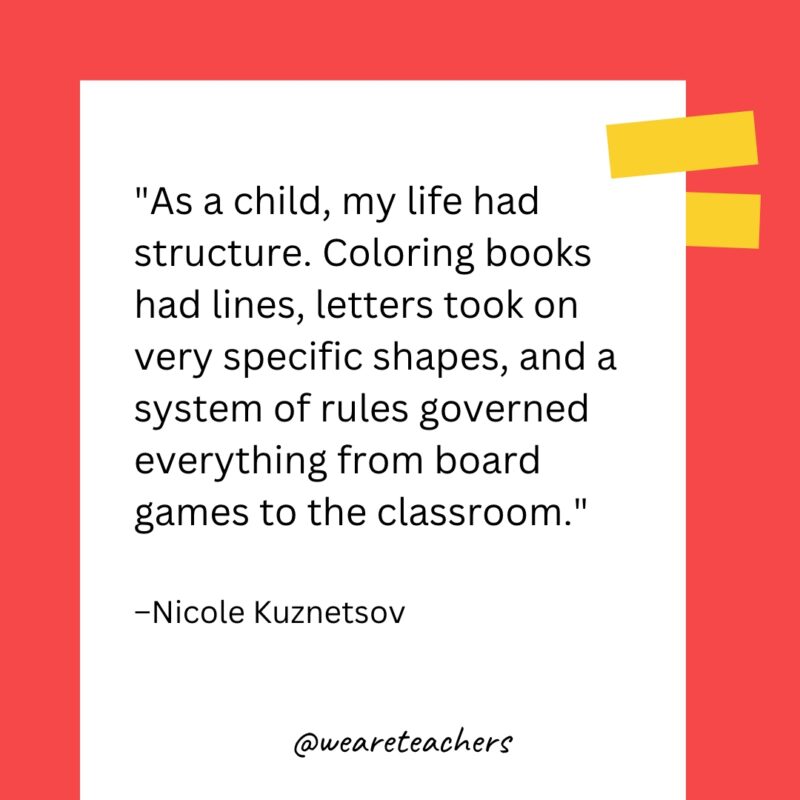
North Coast Section Foundation Scholarship Essay by Christine Fung
Award Amount: $1,000
Why it was successful: Christine Fung masterfully shared how her upbringing instilled strong values, a love for education, and a passion for medicine .
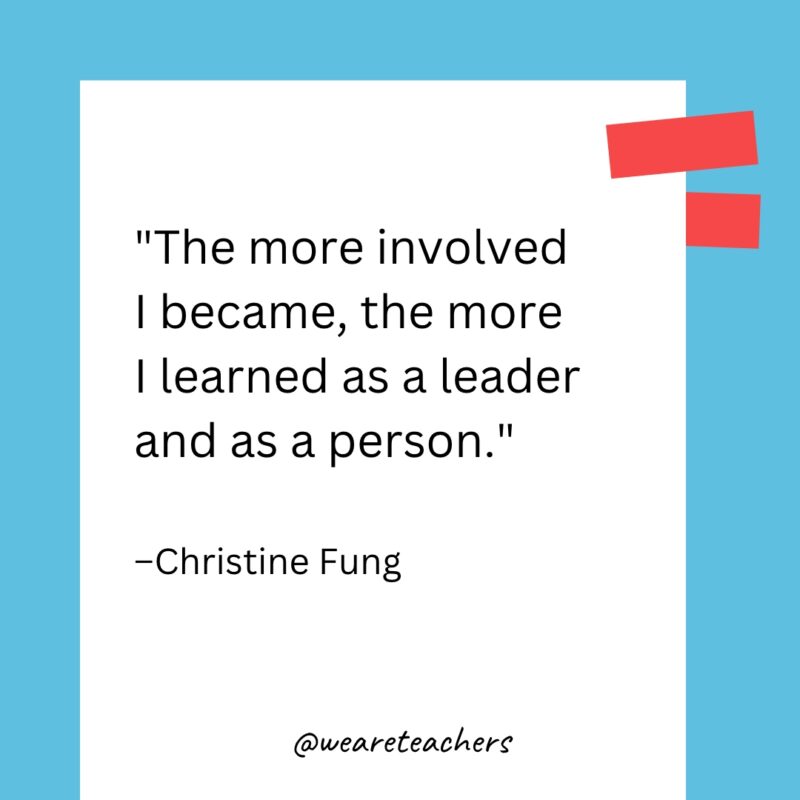
The Bill Browning Scholarship Essay by Gabby DeMott
Award Amount: $10,000
Essay prompt: Discuss an accomplishment, event, or realization that sparked a period of personal growth and a new understanding of yourself or others.
Why it was successful: Gabby DeMott shared her experiences with personal growth and overcoming fears in Germany. She also appealed to the very human feeling of wanting to belong in a way that was inspiring.
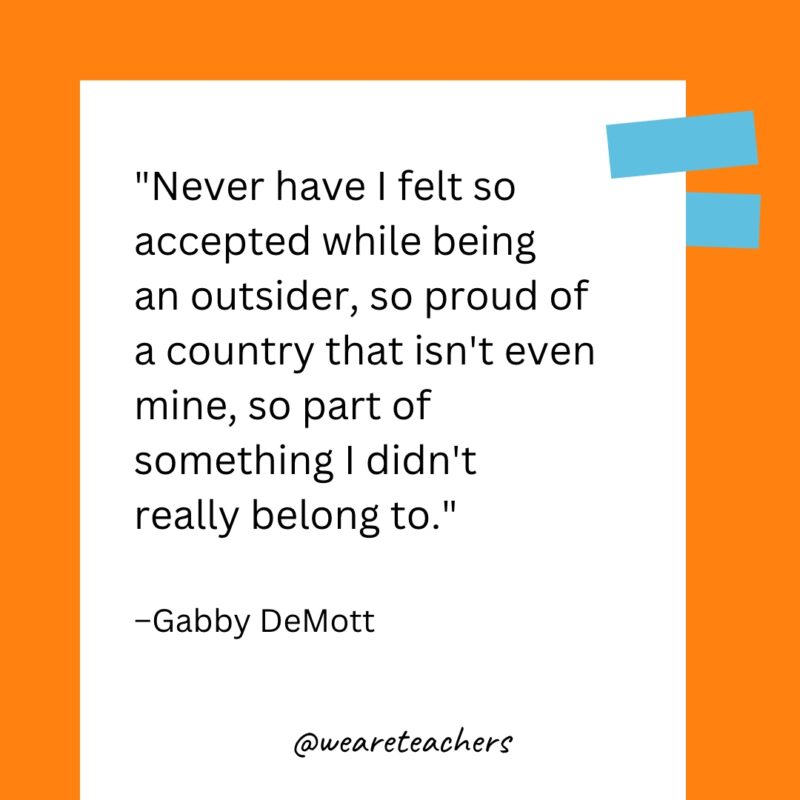
Life Happens Scholarship Essay by Emily Trader
Award Amount: $15,000
Essay prompt: How has the death of a parent or guardian impacted your life financially and emotionally? Be sure to describe how the loss of your parent/guardian impacted your college plans, and explain how the lack of adequate (or any) life insurance coverage has impacted your family’s financial situation.
Why it was successful: Emily Trader fully addressed the prompt in honest, beautiful detail. She knew her audience and tailored her essay to appeal to them while telling her compelling story.
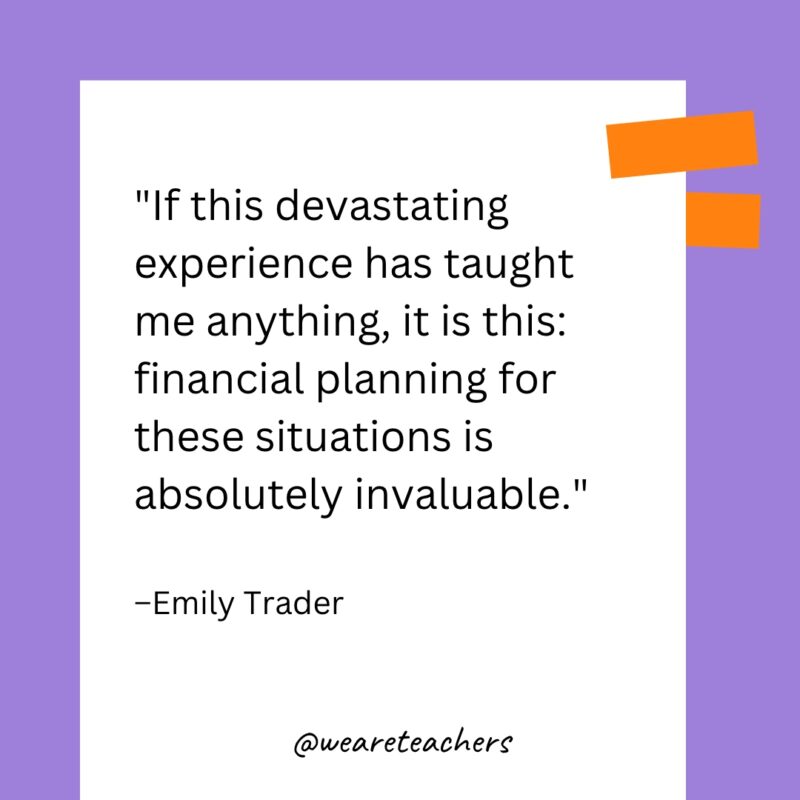
Change a Life Foundation Scholarship Essay by Isabella Mendez-Figueroa
Essay prompt: Please explain how your experience volunteering and participating in community service has shaped your perspective on humanity. Elaborate on how these experiences have influenced your future ambitions and career choice.
Why it was successful: Isabella Mendez-Figueroa shared an empowering story about her parents overcoming financial adversity so that she and her sister could be the first in their family to go to college.
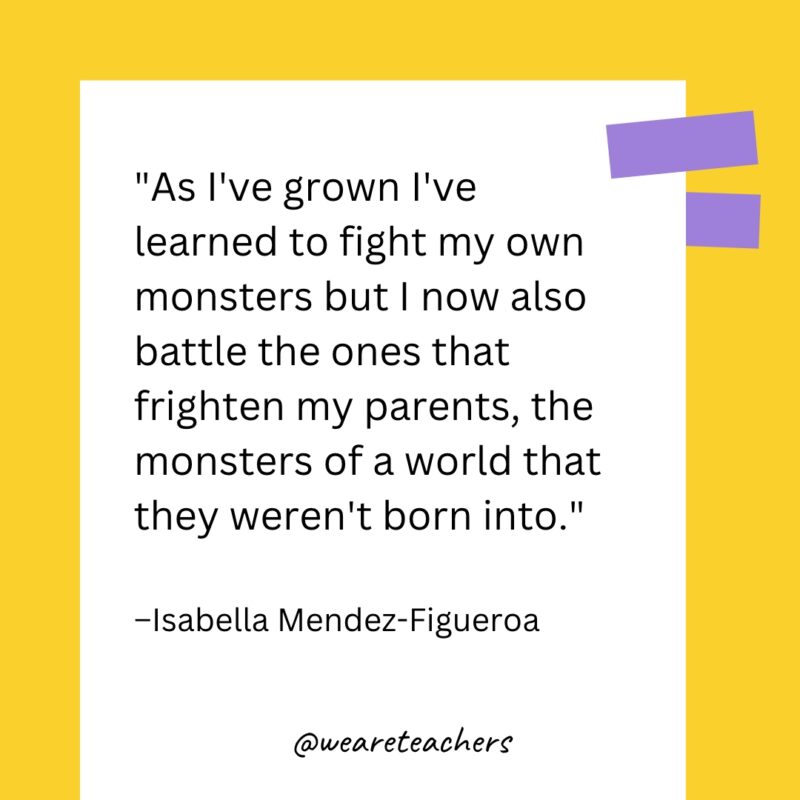
Giva Scholarship Essay by Joseph Lee
Essay prompt: Who is (or what makes) a good doctor?
Why it was successful: Joseph Lee offered a captivating , personal story that was essentially a list of things that make someone a good doctor without it feeling boring or calculated.
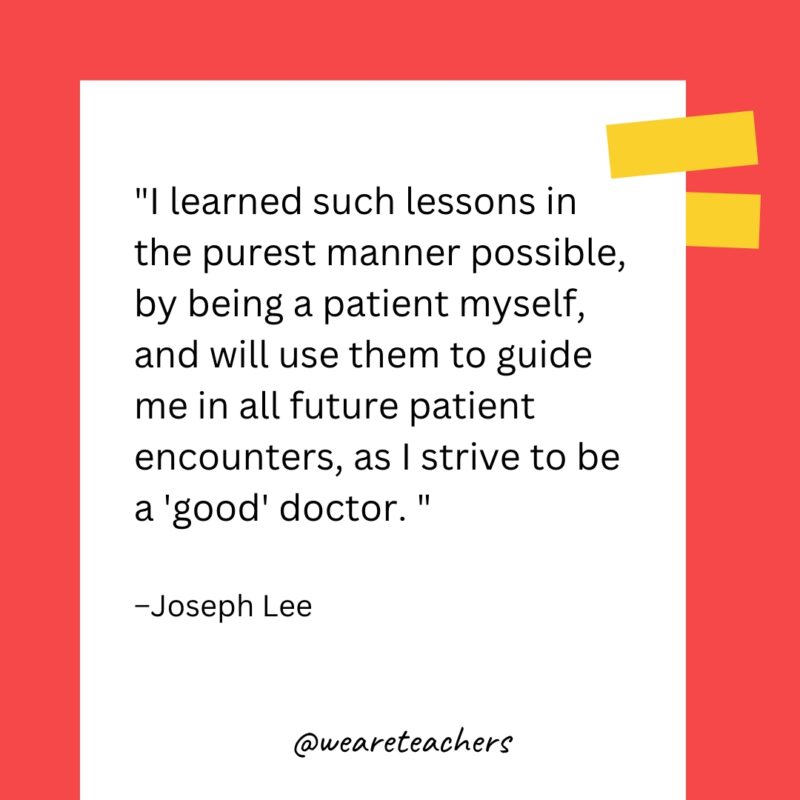
New York University College of Arts and Science Scholarship by Ana
Award amount: $39,500
Essay prompt: Explain something that made a big impact in your life.
Why it was successful: Ana discussed how early experiences w ith learning difficult things has contributed to her passion for teaching and supporting students.

The Fund for Education Abroad Rainbow Scholarship Essay by Steven Fisher
Award amount: $7,500
Essay prompt: The Fund for Education Abroad is committed to diversifying education abroad by providing funding to students who are typically under-represented in study abroad. Please describe how you and/or your plans for study abroad could be viewed as under-represented.
Why it was successful: Steven Fisher’s powerful essay connected his realizations about his own sexual identity with embracing the beautiful diversity found all around the world.
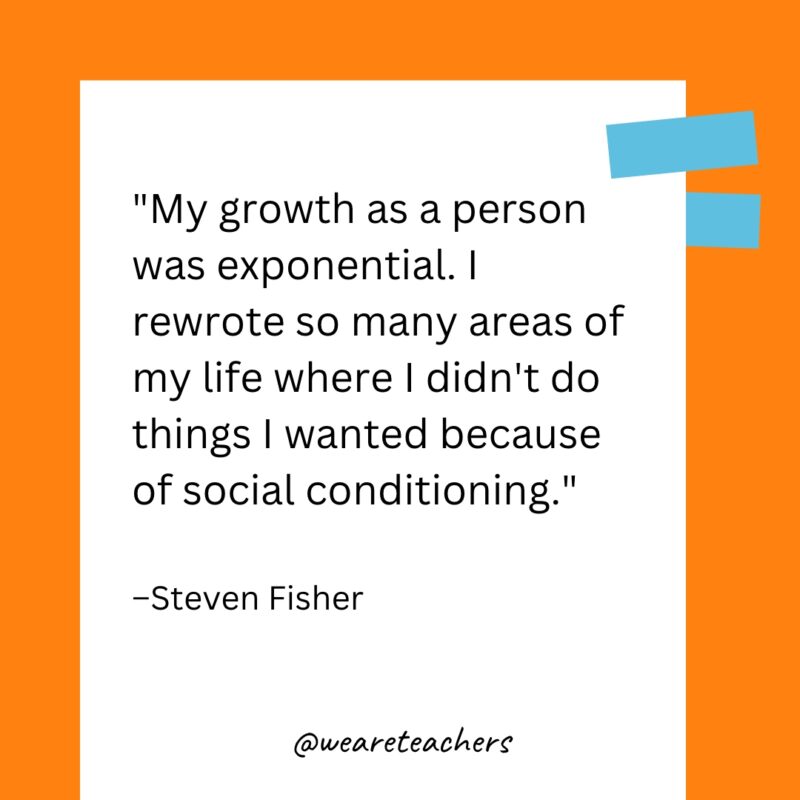
Women’s World Banking Founder’s Scholarship Essay by Rosaisha Ozoria
Essay prompt: Write about your hopes for the future of women and girls worldwide.
Why it was successful: Rosaisha Ozoria focused on a very specific topic , financial literacy for Hispanic women, and emphasized its importance and relevance to her own life.
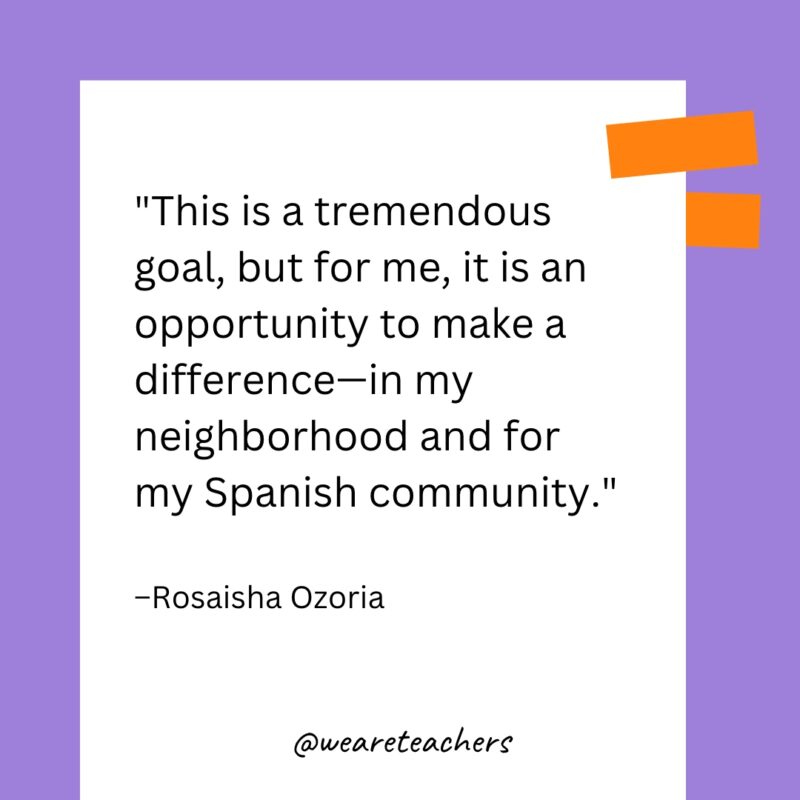
The Millennium Gates Last Dollar Scholarship Essay by Famyrah Lafortune
Award amount: $3,500
Essay prompt: Education is the most powerful weapon which you can use to change the world.” —Nelson Mandela Describe a change you would like to make in the world. Tell us about how you would plan to make that change, and what obstacles you might encounter along the way.
Why it was successful: Famyrah Lafortune starts with a strong statement about ending racial inequality and then details the steps she’ll take to make it happen.
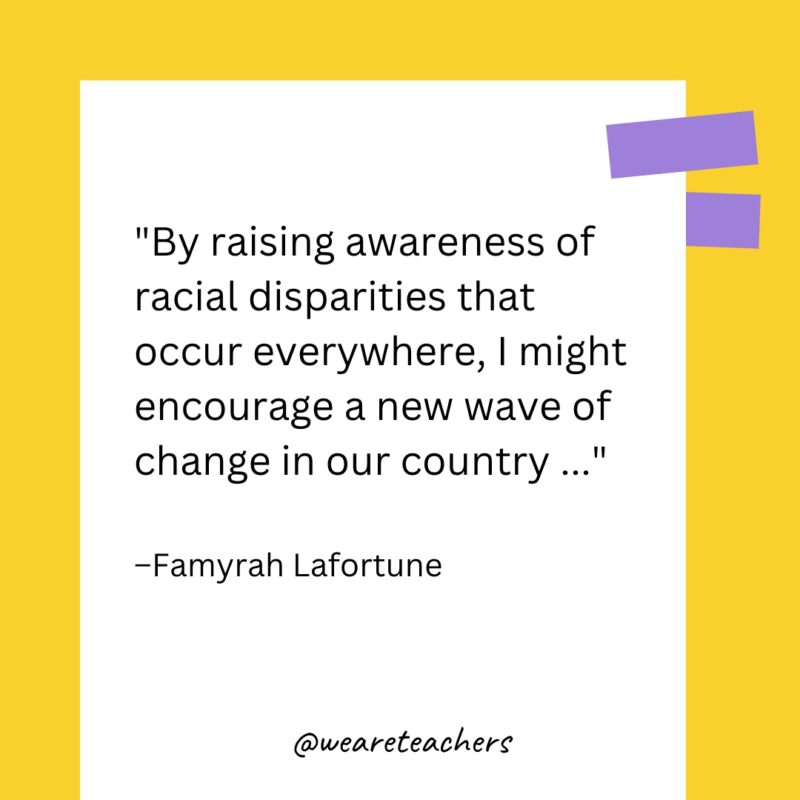
Do you have any great scholarship essay examples? Share them below!
Plus, check out the ultimate guide to college scholarships, want more suggestions be sure to subscribe to our newsletters ..
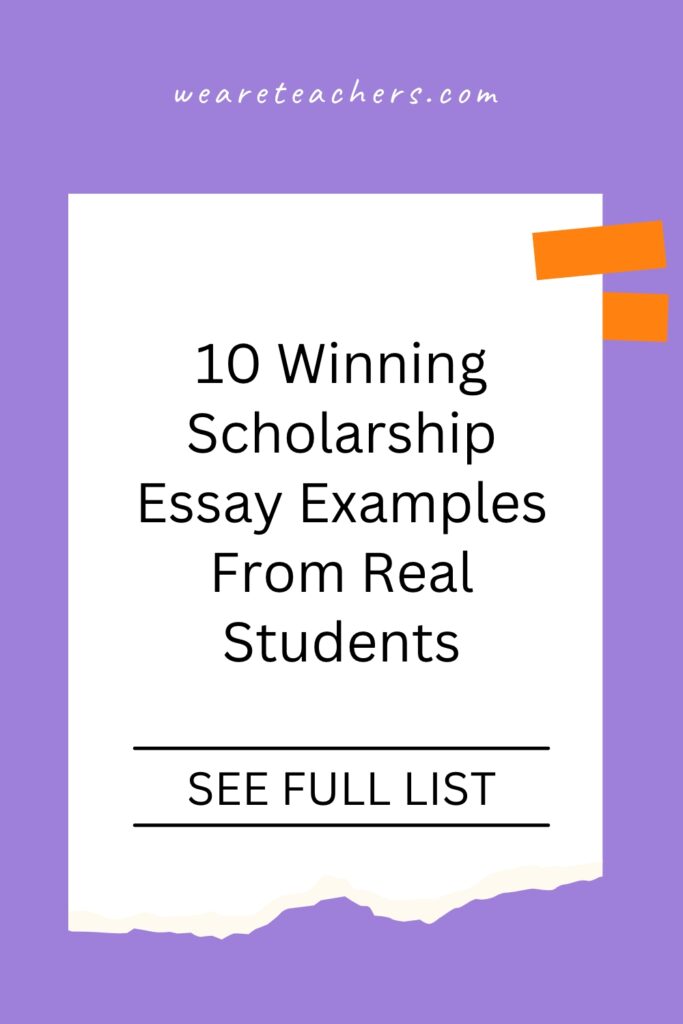
You Might Also Like
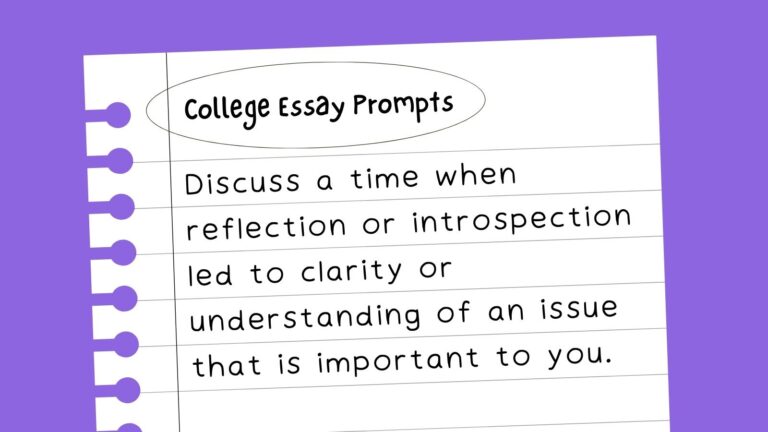
60+ College Essay Prompts From Actual 2023-2024 Applications
Ideas to inspire every college applicant. Continue Reading
Copyright © 2023. All rights reserved. 5335 Gate Parkway, Jacksonville, FL 32256
Two Exceptional Journalism Students to Share 2024 Gridiron Scholarship Award
You are here: american university school of communication news two exceptional journalism students share 2024 gridiron scholarship award.
(202) 885-2058
McKinley Building on a map
Back to top
Two Exceptional Journalism Students Share 2024 Gridiron Scholarship Award

The Gridiron Club and Foundation of D.C. has been a long-standing financial supporter of American University School of Communication (AU SOC) journalism students.
Our latest scholarship applications asked students to articulate the role of journalism in democracy while identifying two challenges facing the industry and their plans to tackle those issues.
A judging panel made up of professional journalists was impressed with the thoughtful, passionate responses. The competition was intense, with a significant number of excellent entries.
We’re thrilled to announce our two winners for 2024. The $5,000 scholarship pool was split between one highly qualified undergraduate journalism major and one graduate student in the Journalism and Digital Storytelling (JRDS) program.

"The Journalism and Digital Storytelling graduate program has allowed me to exercise my creativity while learning new skills that will prepare me for success in a modern journalism field. I have always been passionate about increasing voter education and participation," said Ansbacher. "I look forward to entering the field of journalism to achieve my goal of providing the public with straightforward, concise, and truthful information with which they can form views of the world around them and engage with society. The Gridiron Club’s support of the next generation of journalists is pivotal to the continuation and success of the profession, and I am grateful for their generosity and investment in my education. "

Partouche said, "I'm honored to have been recognized by the Gridiron Club and Foundation, and I'm excited to continue my journey in journalism with the support of the club while I pursue new opportunities in the field."
*WAMU is licensed by American University.

COMMENTS
Action- Leave the essay open-ended so that the reader thinks about you. For example, "I put on my jacket and stepped outside confidently.". End the conclusion with a description: "The sun began to peak out from the clouds, sending rays of orange and red throughout the sky, warming my face and brightening up the world.".
Scholarship Essay Example #5. Questbridge Finalist essay earning $3,000 in application waivers plus $3000 in local scholarships by Jordan Sanchez. Prompt: Some students have a background, identity, interest, or talent that is so meaningful they believe their application would be incomplete without it.
2. Build on past points, don't repeat them. Again, your conclusion should focus on elevating the points you have made throughout the essay rather than restating them. At this point in the essay, you can assume that your reader already knows the basis of your case as a candidate. Use this opportunity to reference your past points, reflect on ...
2. Tie conclusion back to your introduction. If you gave a powerful personal story in your introduction, the conclusion is a great time to bring the reader back to that. For example, if you opened your scholarship essay talking about a specific personal story, the conclusion is a great time to tie back to that story and give it a great ending.
Yes, but make sure your essay directly addresses the prompt, respects the word count, and demonstrates the organization's values. If you plan ahead, you can save time by writing one scholarship essay for multiple prompts with similar questions. In a scholarship tracker spreadsheet, you can group or color-code overlapping essay prompts; then, write a single essay for multiple scholarships.
Now you've written your scholarship essay—or most of it. All that remains is the hardest part: the conclusion. You know that the conclusion can make or break any essay, and this isn't an essay that you want broken. To give yourself the best possible shot at a scholarship, make sure that the conclusion of your essay is the best part of it.
Start with a hook. Your writing teachers were not joking about the importance of the introductory hook. There are a number of ways to hook the reader, including: Using startling statistics. Opening with a moving sentence. Making a strong statement. For an example of an engaging hook, say you are writing an essay about social media distraction.
Structuring Your Essay. Your essay should follow a standard format that includes a clear beginning, middle, and end. Typically, you should: · Establish your main idea in the introduction. · Include a separate body paragraph for each key point that supports your main idea. · Draw it all together and revisit your main idea in the conclusion.
It's a good idea to prepare to write this essay at least three times. First, there's a rough draft that should be carefully proofread. Students can ask a teacher or other professional to also look at their paper. Then students should repeat this process once or twice more until they're happy with the results.
A great scholarship essay helps the scholarship provider understand the real person behind the application and can be the key to winning the award (assuming you meet the other scholarship criteria). Scholarship Essays vs. College Essays. Scholarship essays are very similar to your college application essays in terms of strategy. Many ...
Every good essay—whether the word count is 150 or 1500—needs an introduction, somebody paragraphs, and a conclusion. The introduction needs to be the thing that "hooks" the reader in. The middle needs to add some detail, and the conclusion wraps everything up. The story doesn't have to be linear, but the structure does.
Consider how your interests and experiences align with what the organization is looking for, and make them clear throughout your essay. 2. Show your personality. You should also use your voice in your essay. Give the scholarship committee insight into who you are as a person — what drives you, what motivates you, and what interests you.
Essay Contests and Writing Competitions: Some organizations and institutions host essay contests and writing competitions that require participants to submit scholarship essays. While participating in these competitions does not guarantee a scholarship, it can give you the opportunity to read winning essays and understand what makes them effective.
In conclusion, this scholarship essay encapsulates my career goals, aspirations, and the dedication I bring to realizing them. By pursuing a career in clinical psychology, I aim to make a meaningful difference in the lives of individuals facing mental health challenges. With the support of this scholarship, I will be equipped with the necessary ...
As an admissions officer, I reviewed thousands of essays for students seeking admission and scholarships. The essay is one of the most important parts of the scholarship application process-a strong essay can go a long way. However, with so much competition, it is important for your scholarship essay to stand out.
In conclusion, writing a scholarship essay requires careful planning, thoughtful reflection, and effective communication. By following the steps outlined in this guide, you can confidently navigate the process and increase your chances of securing the scholarship funding you deserve. Good luck with your scholarship essay!
Student Resources. Scholarship Essay. Writing a scholarship essay can feel overwhelming and daunting, but unlike other academic genres, it can be a chance to use your own voice and be rewarded for it. Scholarship essays are a great opportunity to show who you are and tell your story to make a lasting impression on your audience.
Option 4: End on an action. Ending on an action can be a strong way to wrap up your essay. That might mean including a literal action, dialogue, or continuation of the story. These endings leave the reader wanting more rather than wishing the essay had ended sooner. They're interesting and can help you avoid boring your reader.
Why This Scholarship Essay Example Worked: 4. Going Merry Scholarship Success Story by Jesus Adrian Arroyo-Ramirez. Why This Scholarship Essay Example Worked: 5. Why College Is Important to Me by Nicole Kuznetsov. Why This Scholarship Essay Example Worked: 6. Financial Literacy for Hispanic Women by Rosaisha Ozoria.
Tips for writing scholarship essays; Scholarship Essay Format. The format of your scholarship essay is significant because you want readers to focus on the content of your essay. The way you format scholarships is going to depend on the scholarship provider's guidelines, and you want to be sure to follow all formatting instructions for each ...
Step 1: Return to your thesis. To begin your conclusion, signal that the essay is coming to an end by returning to your overall argument. Don't just repeat your thesis statement —instead, try to rephrase your argument in a way that shows how it has been developed since the introduction. Example: Returning to the thesis.
Provide specific examples and details to showcase your qualities and achievements. Avoid vague or unclear writing. Relate your experiences back to the prompt and how they align with the scholarship's goals and values of the organization awarding the scholarship. Finally, write a conclusion for your piece.
The Bill Browning Scholarship Essay by Gabby DeMott. Award Amount: $10,000. Essay prompt: Discuss an accomplishment, event, or realization that sparked a period of personal growth and a new understanding of yourself or others. Why it was successful: Gabby DeMott shared her experiences with personal growth and overcoming fears in Germany.
The $5,000 scholarship pool was split between one highly qualified undergraduate journalism major and one graduate student in the Journalism and Digital Storytelling (JRDS) program. The JRDS selection is Josephine Ansbacher. Her essay focused on partisan efforts to disenfranchise voters with misinformation and the weaponization of political speech.